-
Ukraine's Unmanned Systems Forces behind every 3rd Russian target hit in June, commander in chief says
The Unmanned Systems Forces (USF) were responsible for every third Russian target hit in June, Commander in Chief Oleksandr Syrskyi said.
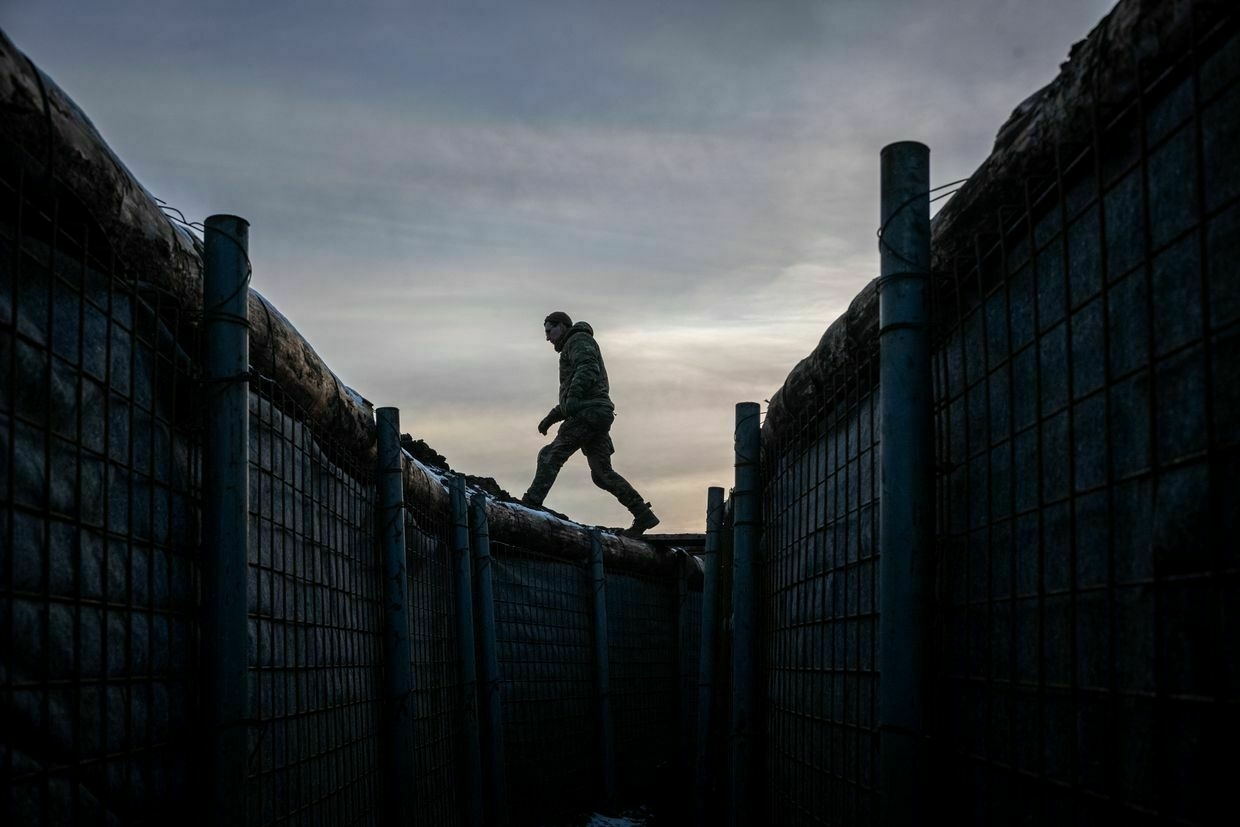
-
Russia targets Kyiv, western Ukraine with mass attack second night in a row
Fires blazed at residential buildings in Kyiv during a mass drone attack on July 10. The assault comes a day after Russia launched its largest-ever drone and missile strike against Ukraine since the start of the full-scale war.
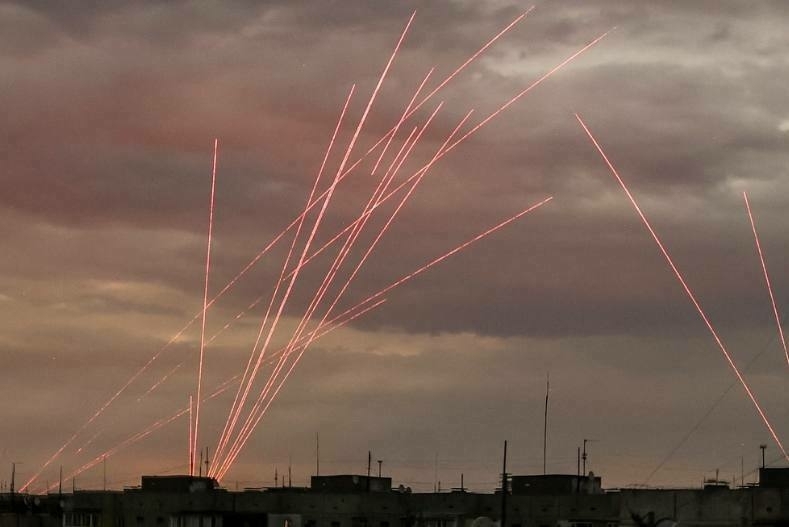
-
US Congress ready to move forward on Russia sanctions bill, but Trump wants changes, Politico reports
“Senate Republicans are committed to working with the House and White House to get this legislation through Congress and on to the president’s desk,” Majority Leader John Thune said.
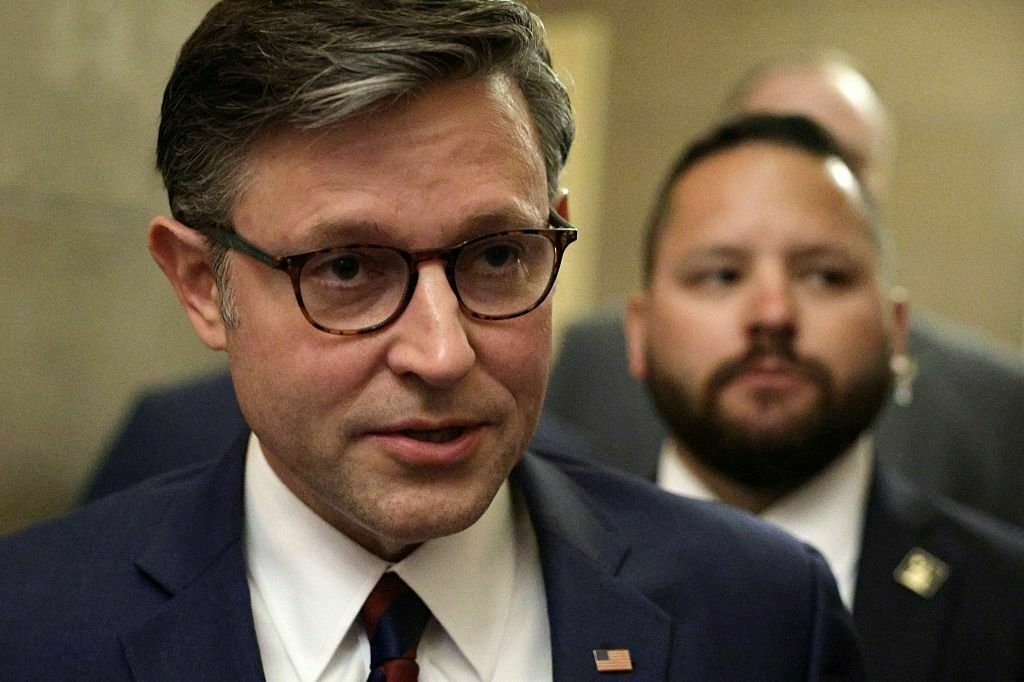
-
Estonia vows to veto EU's 18th sanctions package on Russia without stricter oil price cap
Estonia has issued a stark warning to veto the European Union's proposed 18th sanctions package against Russia unless it includes a tougher cap on Russian oil prices, according to ERR. Estonia's Foreign Minister Margus Tsahkna announced the country's firm stance, emphasizing that the reduction of the oil price cap should be key in the forthcoming sanctions.
"We hold a very clear position that the reduction of the oil price cap must be incorporated into this package. We have a strong stance on this matter," Tsahkna stated. He explained that the European Commission initially proposed lowering the current cap from $60 a barrel to $45. Still, Mediterranean countries with significant shipping industries, notably Malta, oppose this provision. As a result, Estonia is prepared to veto the adoption of the 18th package without this critical price cap adjustment.
Tsahkna also expressed hope for backing from major EU countries, reminding that the $60 cap has been enforced for two years without decrease due to Western resistance. Now, however, there appear to be signs of a renewed will from G7 nations to implement a stricter cap on Russian oil. Additionally, recent signals from the U.S. suggest an inclination towards increasing pressure on Russia with fresh restrictions.
The EU continues to ban member-state vessels from transporting Russian oil sold above the ceiling. Insurance companies and other service providers are similarly prohibited from supporting such transactions. Despite this, Russia has been selling oil above the cap to other global markets, leveraging its 'shadow fleet' of tankers.
-
Russia plans to establish domestic lithium-ion battery production after capturing one of the largest Ukrainian lithium deposits
Russian state corporation Rosatom has announced its intention to fully localize the production of lithium-ion batteries within Russia by the year 2030. This ambitious announcement followed Russia's capture of the Shevchenko settlement in Ukraine's Donetsk region, home to one of Ukraine's largest lithium deposits. Despite the ongoing conflict, Russia continues to import lithium from Chile.
Rosatom aims to achieve complete localization through two "gigafactories" situated in Russia: one in Kaliningrad Oblast (Neman) and the other within Moscow's boundaries (Krasnaya Pakhra in the Troitsky Administrative Okrug). This information was shared by Anastasia Mikhailova, CEO of Renera, a battery producer under Rosatom, during the "Innoprom-2025" forum.
This announcement comes merely weeks after international media, including Le Figaro, reported that Russian forces had established control over Shevchenko village and its nearby lithium deposit. The Shevchenko lithium site, discovered in the 1980s, is considered one of the most promising for development in Ukraine. According to Ukraine's State Geological and Subsoil Service, the local rocks contain lithium oxide at a concentration of 1.24%. For comparison, major deposits in Australia, where lithium is also extracted from minerals, have concentrations ranging from 1% to 3%.
Ukraine's lithium wealth includes four major deposits, two of which remain under Kyiv's control in the country's west. However, Shevchenko and Krutaya Balka, near the Sea of Azov, are now under Russian control.
Interestingly, Russian authorities in the self-proclaimed Donetsk People’s Republic reported gaining control over the Shevchenko lithium deposit as early as January this year. Despite this assertion, clashes persisted around the area throughout January, February, and into the spring of 2025.
Russia does not domestically mine lithium. Prior to the conflict, Chile and Argentina were primary suppliers of lithium carbonate to Russia. After Russia's full-scale invasion of Ukraine, the Russian Ministry of Industry and Trade announced that it would no longer receive lithium from these countries, despite them not imposing sanctions on Russia. Indeed, customs data for 2022-2023 show the absence of such imports.
Nonetheless, imports from Chile persisted, indirectly, with documentation originally labeling some Chilean lithium as exports from Belgium. In 2022-2023, Belgium emerged as the leading lithium supplier to Russia, despite not being a producer itself.
Two Belgian companies - SQM Europe N.V. and Umicore - handled shipments of lithium carbonate, later refined into pure metal or compounds. SQM Europe N.V. is linked to Chile's largest lithium producer, Sociedad Química y Minera (SQM). Umicore is a major Belgian chemical and metallurgical company. The Insider reached out to both firms for comment but has not yet received a response.
Customs data identifies Chilean companies Albemarle Limitada and SQM, alongside America's FMC Lithium, as the leading producers of lithium, holding a near-monopoly in its extraction and production market. SQM has stated that it adheres to "all international trade embargoes and sanctions" in response to inquiries from The Insider.
-
Russian attack in Donetsk Oblast leaves 3 dead, administrative building 'destroyed'
Rescuers retrieved the bodies of two victims from under the rubble, Ukraine’s State Emergency Service said. A third man was killed by a drone and another civilian injured in the front-line city of Kostiantynivka.
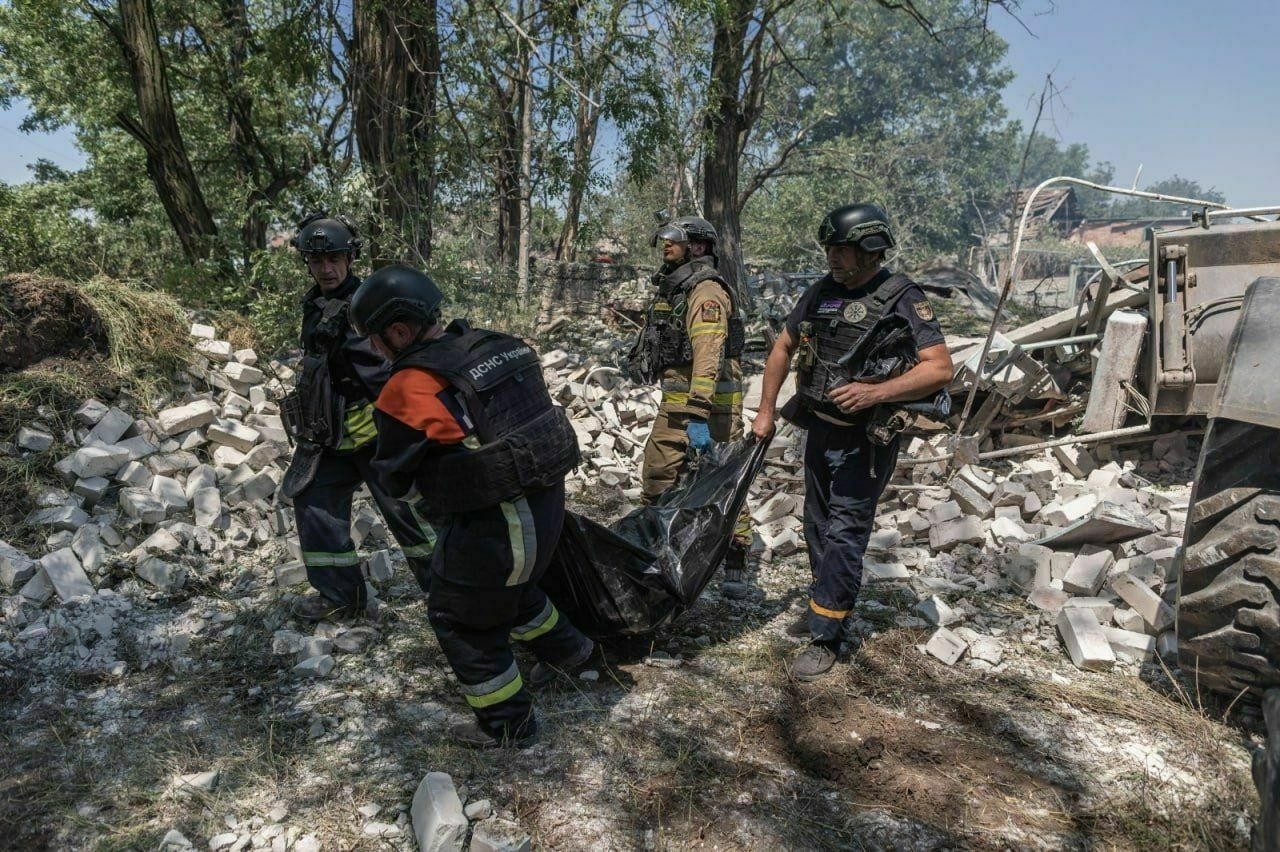
-
Trump changed his mind? 💥 Harsh criticism of Putin after "trust" #shorts
-
Ukrainian military: Russia lacks resources to encircle Pokrovsk-Myrnohrad agglomeration
As of now, Russian troops may not possess the necessary strength and resources to bypass the Pokrovsk-Myrnohrad agglomeration from the east, said Viktor Tregubov, spokesperson for the "Khortytsia" operational-strategic troop grouping, in a comment to Novosti Donbassa".
However, according to him, the Russian forces do indeed have such plans. A significant concentration of forces is present—more than 100,000 personnel are currently operating in the Pokrovsk direction. The Russians are attacking heavily there, more than in any other area under our responsibility. They are now banking on claiming as much territory as possible where the space is relatively open. Where to proceed next—whether to focus on Kostiantynivka or the Pokrovsk-Myrnohrad agglomeration and attempts to encircle it from the eastern or northern sides—remains to be decided, Tregubov stated.
Tregubov highlighted that in this sector, as in other parts of the front, the Russians are deploying small infantry units. In the Pokrovsk direction, heavy equipment is slightly more prevalent but still within statistical error margins. Aviation is also being utilized.
Between December 2024 and February 2025, the Russian army launched a large-scale offensive aiming to encircle Pokrovsk from the western. However, the attempt was unsuccessful, forcing the invaders to retreat from the city's western outskirts.
Later, Russian armed forces split their Pokrovsk grouping and began moving in two directions—westward toward the Dnipropetrovsk region and eastward across the Pokrovsk-Kostiantynivka highway.
In late June, it was reported that Russian troops are attempting to encircle the Pokrovsk-Myrnohrad agglomeration.
-
Ukraine war latest: Russia launches record 741 drones, missiles at Ukraine
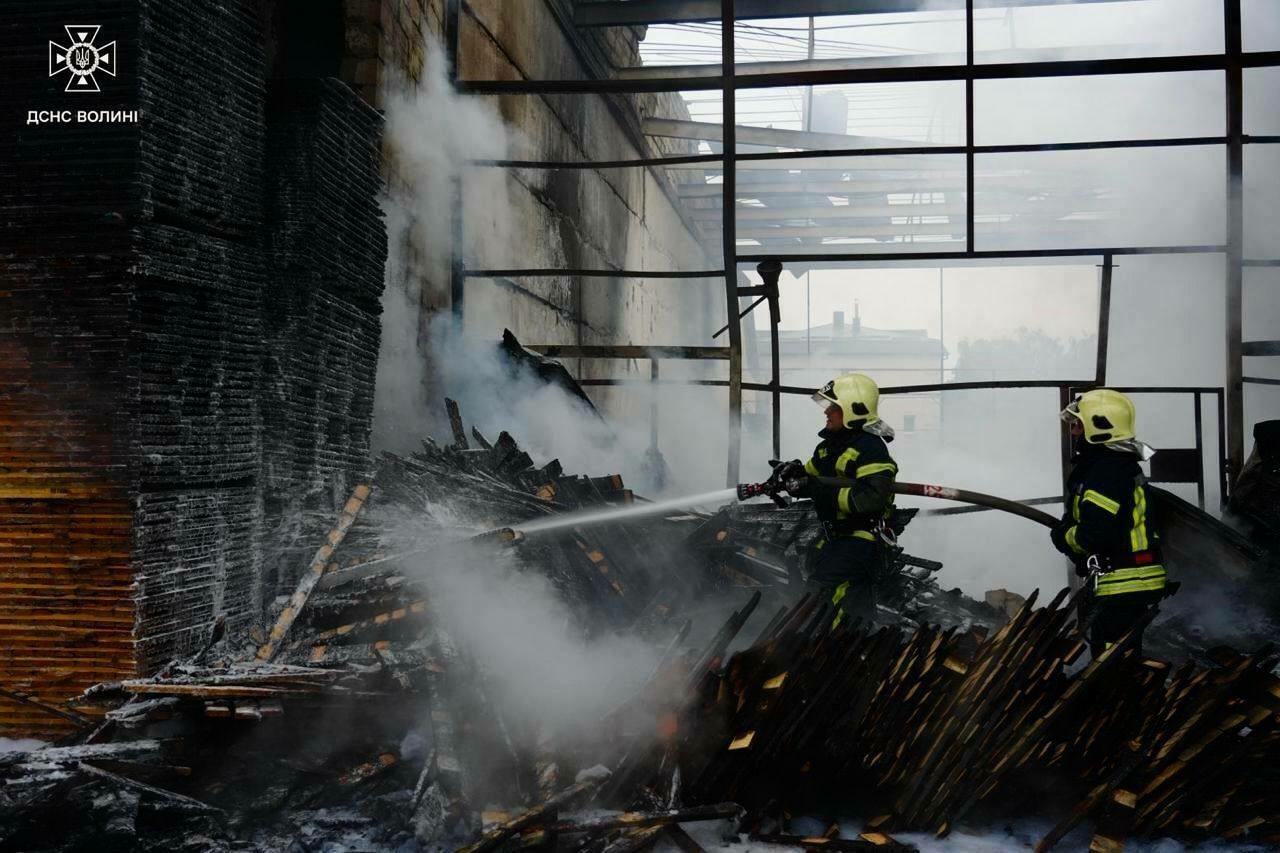
Key developments on July 9:
- ‘Nearly everything was aimed at Lutsk’ — Russia launches record 741 drones, missiles, targeting western Ukraine
- Trump says US will ‘take a look’ at sending new Patriot system to Ukraine amid Russian attacks
- In historic feat, Ukraine’s 3rd Brigade captures Russian troops using only drones and robots, military says
- Ukraine detains Chinese spies tasked with stealing Neptune missile technology, SBU says
- Slovakia continues to block EU’s 18th Russia sanctions package, media reports
Russia launched what appears to be its largest missile and drone attack against multiple Ukrainian cities overnight on July 9, with the far-western city of Lutsk coming under the heaviest attack of the war.
Russian forces deployed 728 Shahed-type attack drones and decoys, as well as seven Kh-101 or Iskander-K cruise missiles and six Kinzhal missiles, the Air Force said.
Late spring and early summer in Ukraine have been marked by disturbingly frequent mass attacks on civilian targets, with Russia regularly terrorizing cities with ballistic and cruise missiles alongside record-breaking numbers of kamikaze drones.
Explosions rocked Kyiv at around midnight on July 9, according to Kyiv Independent journalists on the ground. Mayor Vitali Klitschko announced that Russian drones were attacking the city center and that air defenses were shooting down targets.
Ukraine’s Air Force reported that dozens of Russian attack drones and ballistic missiles were also targeting Ukraine’s far-west regions, with alerts of overhead drones approaching the western cities of Lutsk, Lviv, Khmelnytskyi, and Ternopil.
Ukrainian air defenses shot down 296 drones and all seven cruise missiles, while 415 drones disappeared from radars, according to the statement.
“Most of the targets were shot down. Our interceptor drones were used — dozens of (Russian) targets were downed, and we are scaling up this technology,” President Volodymyr Zelensky said on X.
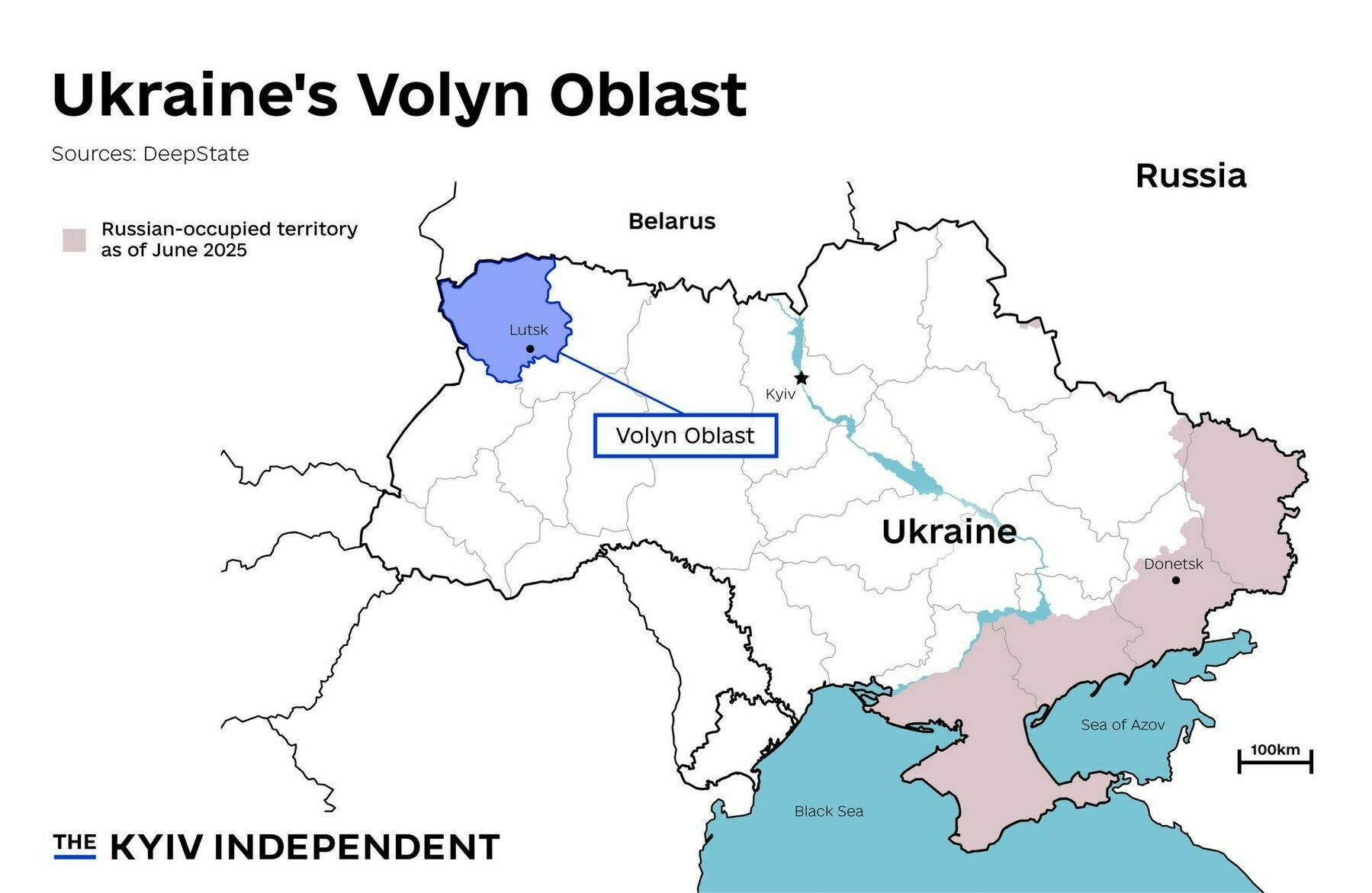
Ukraine’s Volyn Oblast (Nizar al-Rifai/The Kyiv Independent) Explosions were heard in the city of Lutsk in western Volyn Oblast just before 4 a.m. local time, Suspilne reported, amid warning of drones and missiles overhead. The city was one of the hardest hit during the attack.
Volyn Oblast Governor Ivan Rudnytskyi said the region had approximately 50 drones and five missiles present in the airspace overnight, adding that “nearly everything was aimed at Lutsk."
Lutsk Mayor Ihor Polishchuk said that a fire damaged an “industrial site” as well as a garage, in what he called the “most massive Russian attack” on the city since the start of full-scale war.
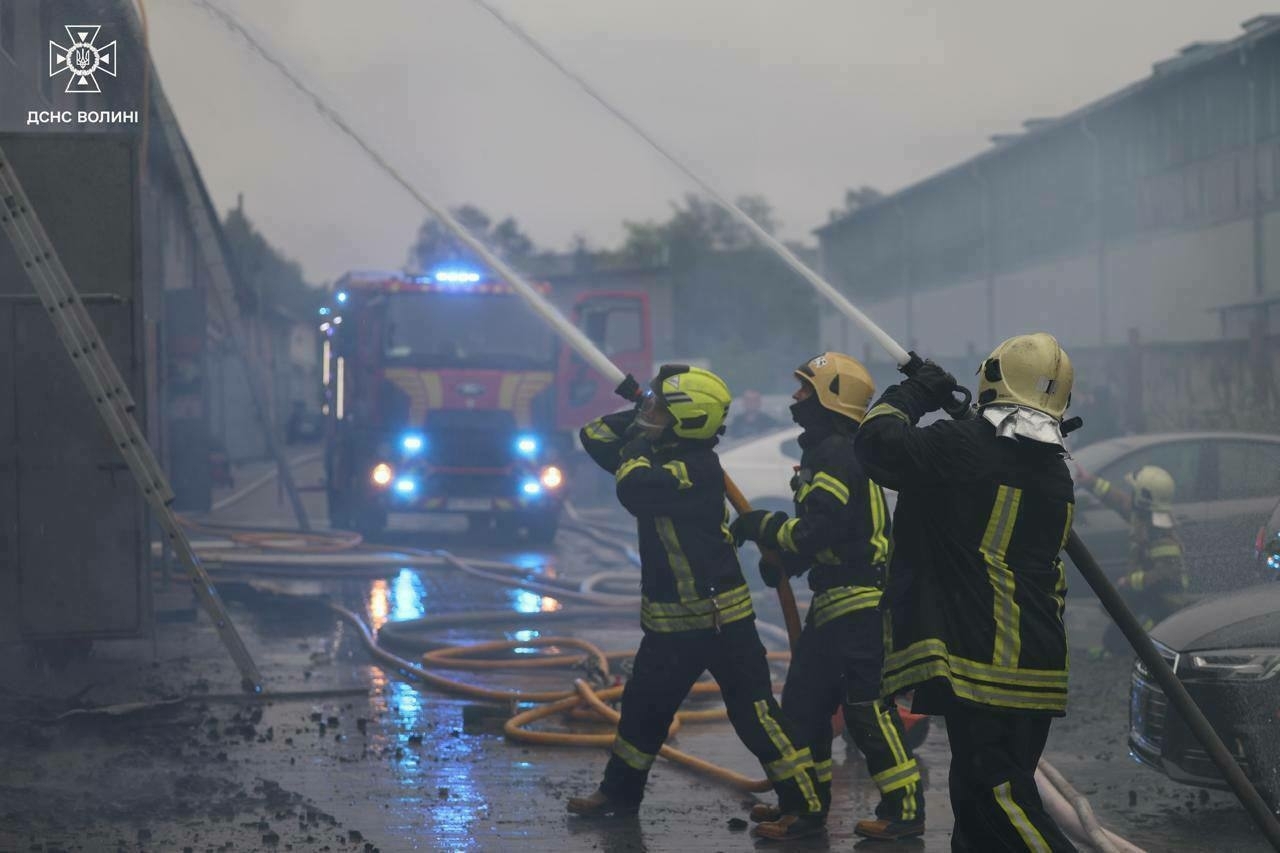
The aftermath of a Russian attack against Lutsk, Volyn Oblast, Ukraine, overnight on July 9, 2025. (State Emergency Service) Elsewhere in the region, the roof of a home in Khmelnytskyi Oblast caught fire, the regional military administration said.
At least one person was injured amid the attack, with a woman sustaining a chest fracture in the city of Brovary in Kyiv Oblast, the regional military administration reported.
Ukraine’s Air Force warned late on July 8 that Russia had launched MiG-31 aircraft from the Savasleyka airfield in Nizhny Novgorod, putting the entire country under an hours-long active missile threat. Swarms of drones were also heading towards multiple cities in Ukraine, the military said.
The Polish Air Force said it scrambled fighter jets amid the attack to protect Poland’s airspace. The air raid alerts were lifted in western Ukraine around 6:15 a.m. local time, after nearly seven hours of warnings from the Air Force.
Explosions were also reported in communities closer to the front line, including Dnipro, Sumy, as well as over Zaporizhzhia Oblast.
Russian ballistic missiles and kamikaze drones have targeted Kyiv and other Ukrainian cities with renewed ferocity in recent weeks, killing dozens of civilians and injuring hundreds more.
Zelensky meets Pope Leo XIV in Rome ahead of Ukraine Recovery ConferencePresident Volodymyr Zelensky arrived in Rome on July 9 and is set to meet with Pope Leo XIV, Suspilne broadcaster reported, citing the presidential spokesperson. The Kyiv IndependentMartin Fornusek
The Kyiv IndependentMartin Fornusek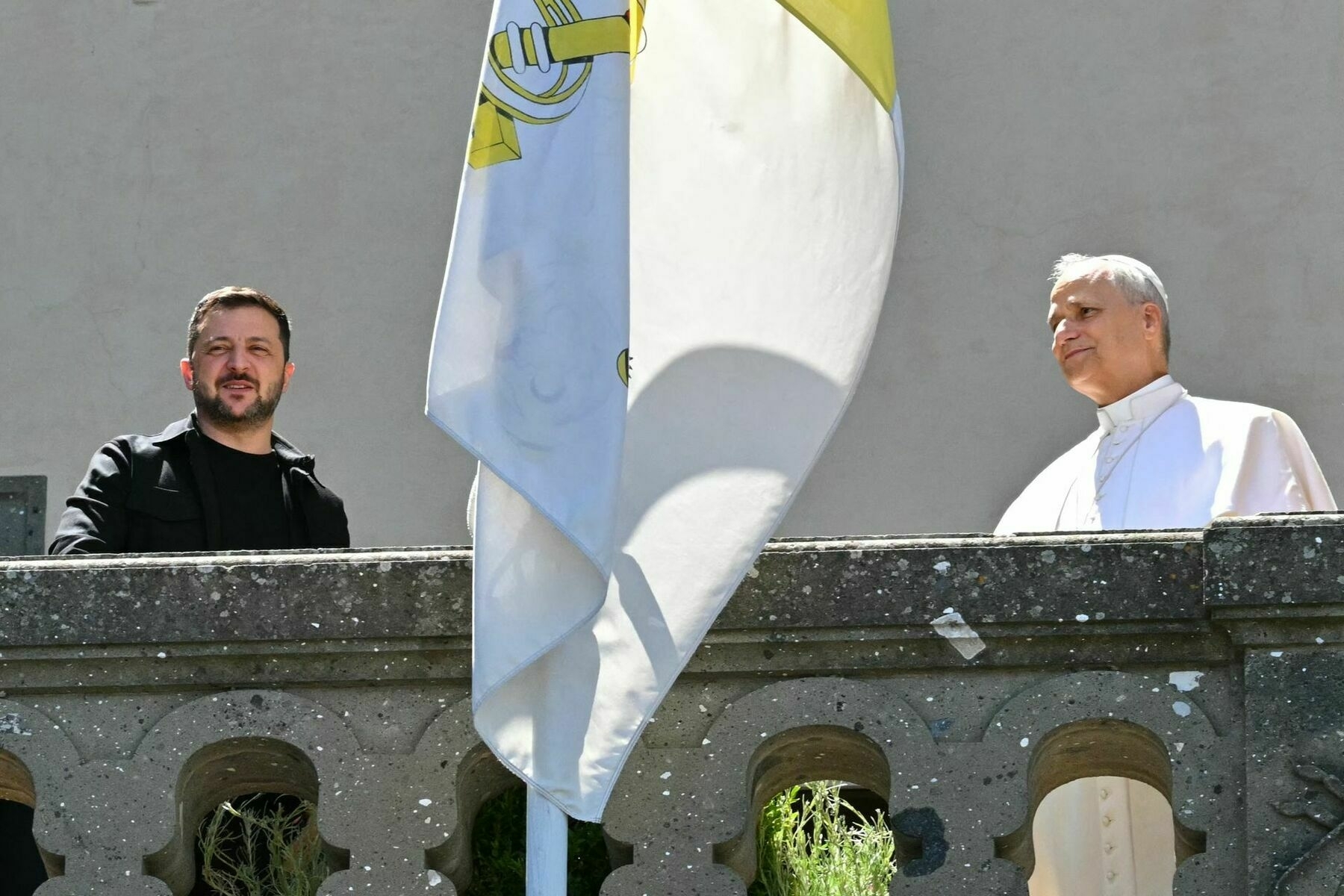
Trump says US will ‘take a look’ at sending new Patriot system to Ukraine amid Russian attacksU.S. President Donald Trump said on July 9 that his administration is “going to have to take a look” at supplying Ukraine with another Patriot air defense system.
“They would like it. They’ve asked for it,” Trump told reporters in the White House. “I know they made the request. We’re going to have to take a look at it."
“When you talk about a system like that… they’re doing it because they want to prevent death,” he added. “They’re getting hit hard, very hard. So we’re looking at it."
The comments follow a July 8 reporting by the Wall Street Journal (WSJ) that the White House is considering sending Ukraine a Patriot battery in what would be the administration’s first major new weapons transfer since taking office in January.
A U.S. defense official told WSJ that Trump has asked the Pentagon to explore options for supplying Ukraine with more arms, including whether additional Patriots could be sourced from allied countries.
According to Axios, the White House is working on a deal under which Germany would sell a Patriot battery to Ukraine, with the U.S. and European allies sharing the cost.
The proposal comes amid a series of conflicting signals from Washington. On July 2, the Pentagon announced a pause in deliveries of key military aid to Kyiv, including Patriot interceptors and precision-guided munitions.
Trump later denied involvement in the decision and expressed frustration with Russian President Vladimir Putin for failing to pursue a ceasefire.
Kyiv has repeatedly urged Western partners to expand air defense coverage as Russian forces continue to target Ukrainian cities with drones, missiles, and aerial bombs.
Patriot batteries, with their high-precision tracking and interception capabilities, are a cornerstone of Ukraine’s layered air defense system.
Washington has so far delivered three Patriot batteries to Ukraine, while Germany has sent three more. A European coalition has contributed an additional battery, though not all systems are currently operational due to maintenance rotations.
If approved, a new transfer would mark Trump’s first major military package to Ukraine not initiated by the previous Biden administration.
‘We need to learn how to live without America’ — Ukraine’s survival amid faltering U.S. aidUkrainians breathed a sigh of relief of sorts this week after it was confirmed that U.S. President Donald Trump had ordered the continuation of shipments of critical military aid after a brief pause. The days-long hiccup alarmed a Ukraine beset with ever-escalating Russian air strikes and a dwindling supply of the means to stop them, and is just the latest instalment of a saga riven with uncertainty over Washington’s willingness to give Ukraine what it needs to defend itself against Russia. A The Kyiv IndependentKollen Post
The Kyiv IndependentKollen Post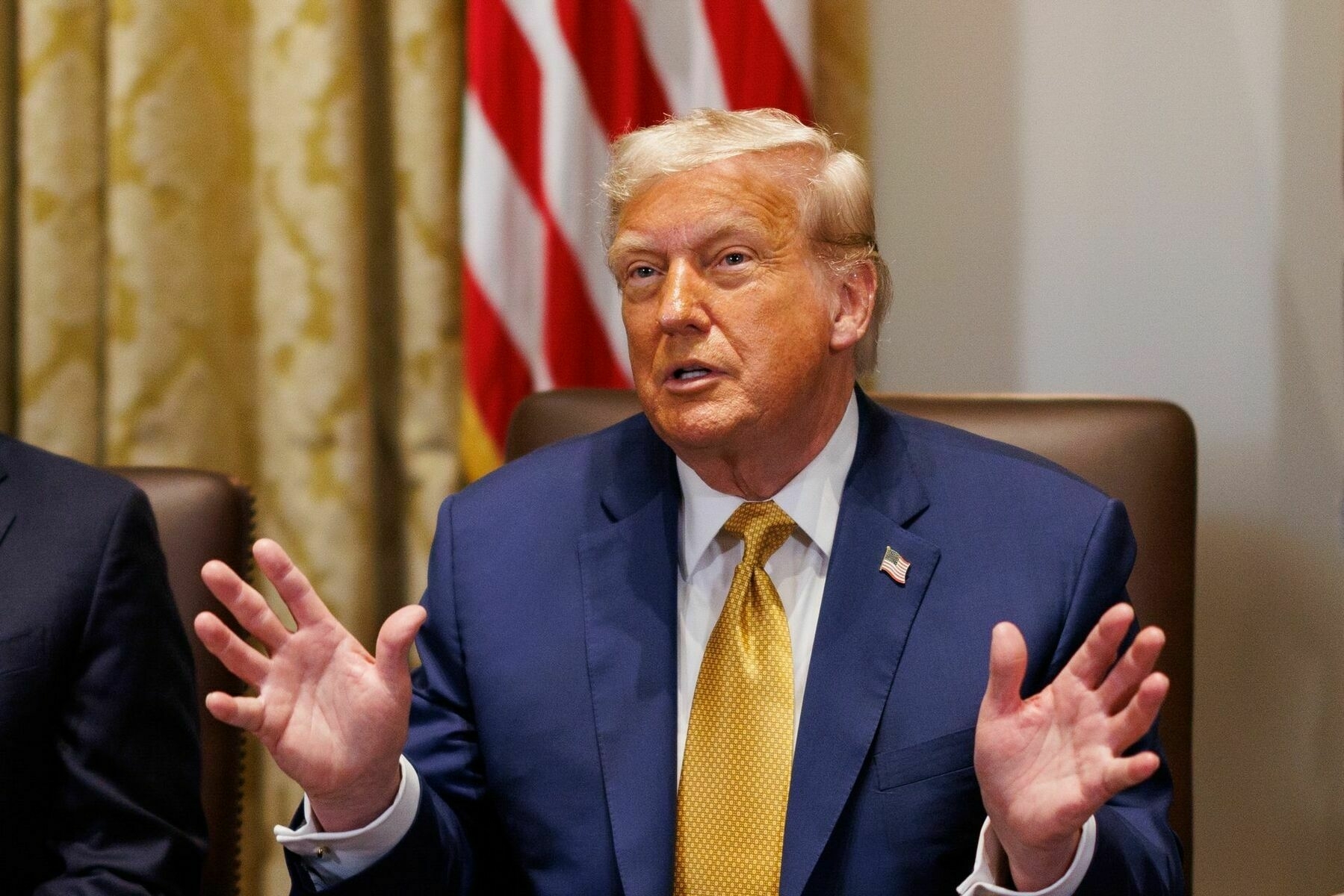
In historic feat, Ukraine’s 3rd Brigade captures Russian troops using only drones and robots, military saysUkrainian forces have for the first time captured Russian troops without the use of infantry, relying solely on drones and ground-based robotic systems, Ukraine’s 3rd Separate Assault Brigade said on July 9.
“For the first time in history: Russian soldiers surrendered to the 3rd Assault Brigade’s ground drones,” the statement read.
Ukraine has increasingly employed drone and robotic technologies on the battlefield as part of its broader strategy to minimize troop losses and adapt to evolving threats along the front line during Russia’s full-scale invasion.
The operation took place in Kharkiv Oblast in northeastern Ukraine, where the brigade deployed first-person view (FPV) drones and kamikaze ground robotic platforms to attack Russian fortifications, the brigade said in a statement.
The exact date of the operation was not provided.
0:00/Footage depicting a Ukrainian operation to capture Russian soldiers with the use of drone systems. Video published on July 9, 2025. (3rd Assault Brigade / Telegram) According to the brigade, Ukrainian forces targeted and destroyed Russian bunkers with kamikaze drones and robotic ground vehicles. As another robot approached a damaged Russian holdout, the remaining Russian soldiers reportedly chose to surrender.
The captured troops were then guided out of the combat zone by drones and taken into custody by Ukrainian forces, the brigade said.
The brigade added that the Russian positions had previously resisted capture by neighboring Ukrainian units, but the successful assault by unmanned systems allowed Ukrainian forces to take control of both Russian fortifications and a nearby forest line.
Russia responsible for MH17 downing, international law violations in Ukraine, Europe’s human rights court rulesThe ruling also found Russia responsible for the deadly downing of Flight MH17, a Malaysian airliner shot down by Russian proxy forces in Ukraine in July 2014. The Kyiv IndependentMartin Fornusek
The Kyiv IndependentMartin Fornusek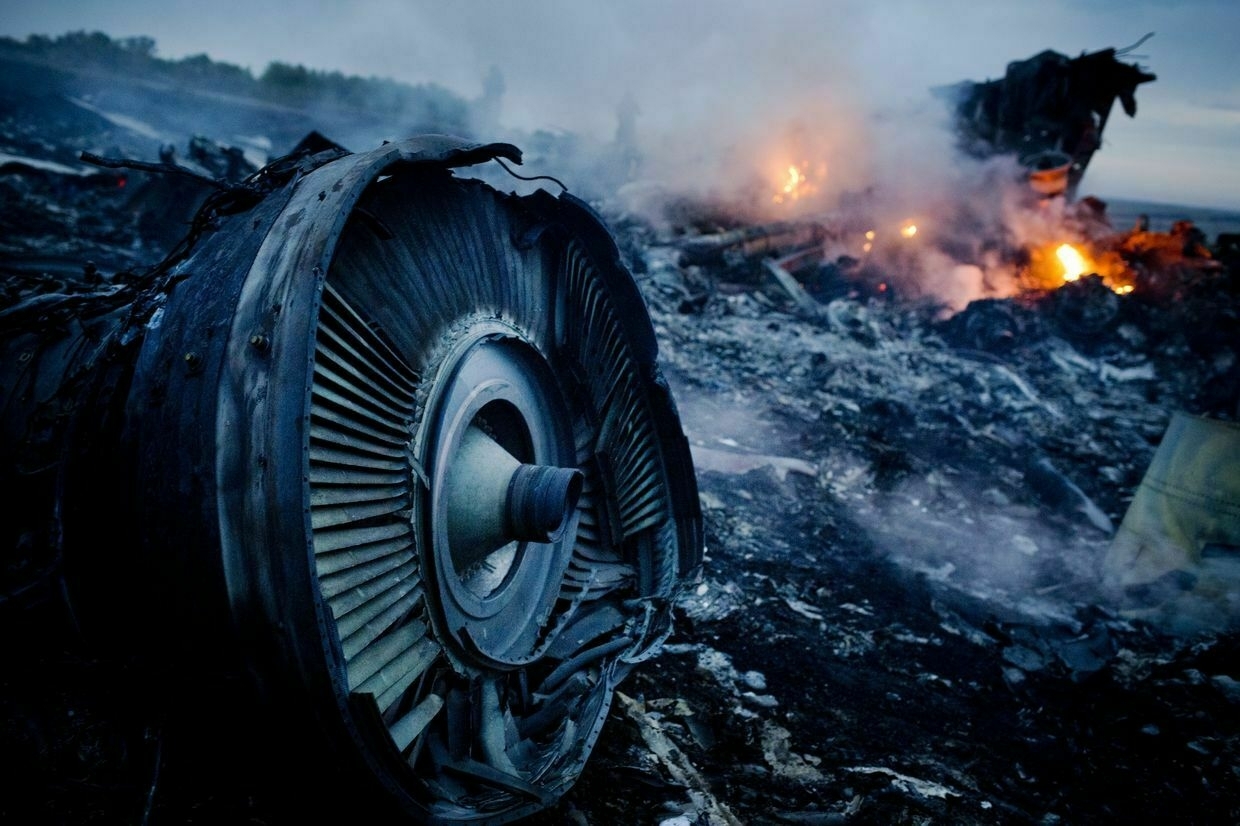
Ukraine detains Chinese spies tasked with stealing Neptune missile technology, SBU saysThe Security Service of Ukraine (SBU) has detained two Chinese nationals in Kyiv suspected of attempting to steal classified military technology related to Ukraine’s Neptune cruise missile system, the agency announced on July 9.
According to the SBU, the two individuals, a 24-year-old former student of a Kyiv technical university and his father, were gathering secret documentation with the intent to illegally transfer it to Chinese intelligence.
The younger man, who remained in Ukraine after being expelled from university in 2023 for poor academic performance, allegedly attempted to recruit a Ukrainian national with access to classified defense technologies in order to obtain technical data on the RK-360MC Neptune missile system.
China has emerged as one of Moscow’s key wartime partners, helping Russia circumvent sanctions and becoming the largest supplier of dual-use goods aiding its defense sector.
President Volodymyr Zelensky has repeatedly accused China of backing Russia and signed an order on July 8 imposing sanctions on five Chinese-registered companies for allegedly supplying components found in Russian Shahed-type drones used to attack Ukraine.
The Neptune, a Ukrainian-developed coastal defense missile, gained international attention after it was used to sink the Russian Black Sea Fleet flagship Moskva in 2022.
The SBU said the former student was caught “red-handed” during the transfer of sensitive documents, and his father was detained shortly afterward. Investigators allege the elder suspect, who resides in China but made periodic visits to Ukraine, personally supervised his son’s espionage activities.
Searches of the suspects' belongings uncovered mobile phones containing evidence of coordinated efforts to spy on Ukrainian military technology, including encrypted communications between the two men.
Both suspects have been charged with espionage. If convicted, they face up to 15 years in prison and confiscation of property.
Ukraine struck a Russian warehouse storing ammunition and reconnaissance drones with a Neptune missile near the village of Chaltyr in Russia’s Rostov Oblast in a January operation carried out by the SBU and Ukraine’s Navy.
Kremlin exacts loyalty amid tightening crackdown on Russian eliteThe Kremlin’s grip on the Russian elite appears to be closing ever tighter as two major figures of Russian business and security structures were detained in the past few days. Konstantin Strukov, a billionaire running a gold mining empire, and Viktor Strigunov, a former top officer in Russia’s National Guard, are now facing corruption accusations. While separate cases, they point to a push by Russian higher-ups to purge corrupt or potentially disloyal figures as Moscow grinds forward its full- The Kyiv IndependentMartin Fornusek
The Kyiv IndependentMartin Fornusek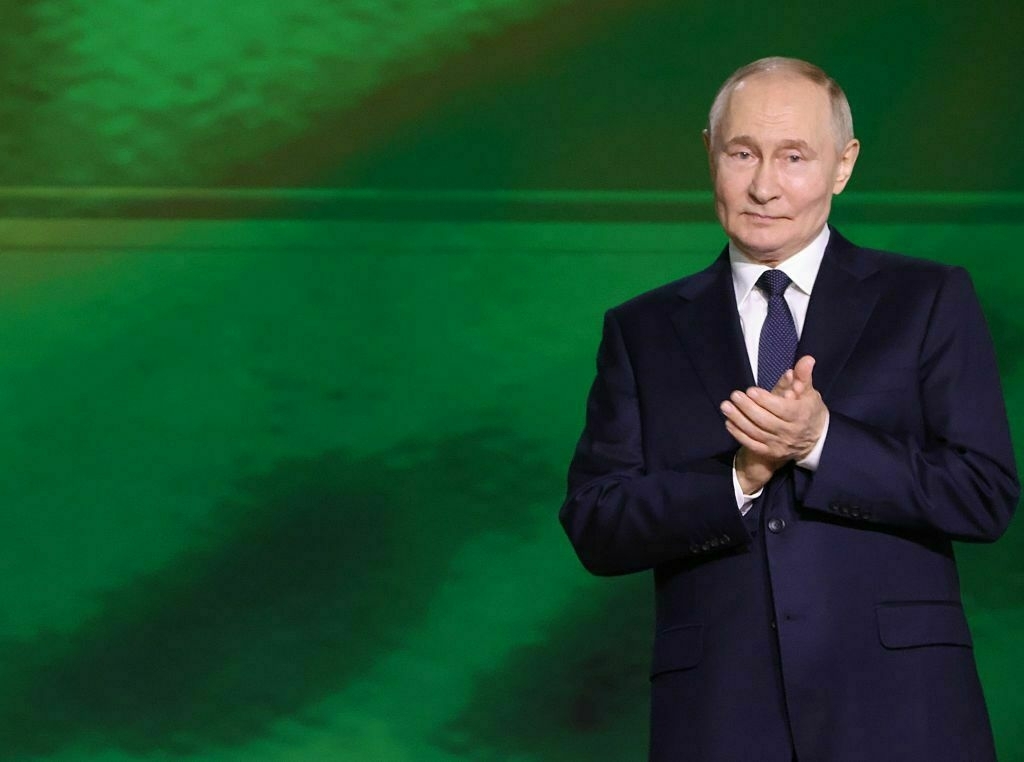
Slovakia continues to block EU’s 18th Russia sanctions package, media reportsEU ambassadors failed to approve the bloc’s 18th package of sanctions against Russia during a July 9 Committee of Permanent Representatives meeting, as Slovakia continued to block the measures, European Pravda reported, citing three unnamed EU diplomats.
Since EU sanctions require unanimous backing, a single country’s veto prevents the package from being implemented. In late June, both Slovakia and Hungary opposed the draft sanctions, stalling their adoption.
According to European Pravda, Slovakia’s position has not changed, despite what one EU diplomat described as “good and productive” talks between Bratislava and the European Commission on July 3.
Unlike Hungarian Prime Minister Viktor Orban, who has consistently opposed sanctions and military aid for Ukraine, Slovakia has not previously tried to block new EU measures.
Bratislava asked for a delay in adopting the latest package until the EU clarifies the financial implications of RePowerEU — an initiative to end reliance on Russian fossil fuels by 2030.
The sanctions package will be discussed again at a meeting scheduled for July 11. Sources told the outlet that a final agreement is expected this week, with formal adoption likely to take place at the EU Foreign Affairs Council meeting on July 15.
The 18th package includes new restrictions on Russia’s energy and banking sectors, as well as bans on transactions connected to the Nord Stream pipeline project.
These measures are part of the EU’s broader effort to increase economic pressure on Moscow as the Kremlin rejects calls for an unconditional ceasefire in Ukraine.
While the EU advances its sanctions framework, the United States has not introduced any new sanctions on Russia since President Donald Trump took office in January.
Note from the author:
Ukraine War Latest is put together by the Kyiv Independent news desk team, who keep you informed 24 hours a day, seven days a week. If you value our work and want to ensure we have the resources to continue, join the Kyiv Independent community.
-
Russia is recruiting "cannon fodder" all over the world – even in Africa!
-
Germany ramps up efforts to strengthen Ukraine's air defense amid Russian attacks
In response to ongoing, large-scale Russian airstrikes on Ukraine, Germany is intensifying its efforts to bolster Ukraine's air defense systems. On Wednesday, July 9, German Chancellor Friedrich Merz said in the Bundestag that he is optimistic about collaborating with the United States in this effort. Merz emphasized his intention to negotiate "arrangements" with the U.S. administration to provide Ukraine with additional air defense systems.
"Our aid to Ukraine won't falter due to financial constraints or staffing shortages. Where we are currently lacking is in the production of military equipment, weapons, and ammunition," stated Merz. He accused Russia of perpetuating "grave war crimes in Ukraine almost daily" with its attacks.
Germany's Ministry of Defense also announced ongoing partner collaborations to enhance Ukraine's air defense. A ministry spokesperson indicated that discussions are underway with partner nations about potentially providing Ukraine with "unused resources." Defense Minister Boris Pistorius will discuss air defense topics during his upcoming visit to the U.S. next week, focusing on joint efforts to reinforce Ukraine against Russian attacks, according to a ministry representative.
The spokesperson described the images coming from Ukraine as horrifying, with destroyed civilian infrastructure, energy facilities, and daily attacks involving hundreds of missiles and drones. "These developments are affecting everyone deeply," the spokesperson said, adding that Russia aims to stretch Ukraine's air defense "to its breaking point."
According to Kyiv, Russia has launched its most massive airstrikes on Ukraine in recent days since the conflict began. On July 9, Ukrainian Air Forces reported that Russia primarily targeted western Ukraine, employing 728 drones and 13 missiles. Impressively, 711 drones and at least 7 of the missiles were intercepted. Ukraine's President Volodymyr Zelensky accused Moscow of once again attempting to derail any ceasefire efforts.
-
Ukraine needs over $40 billion in foreign aid for 2026, prime minister says
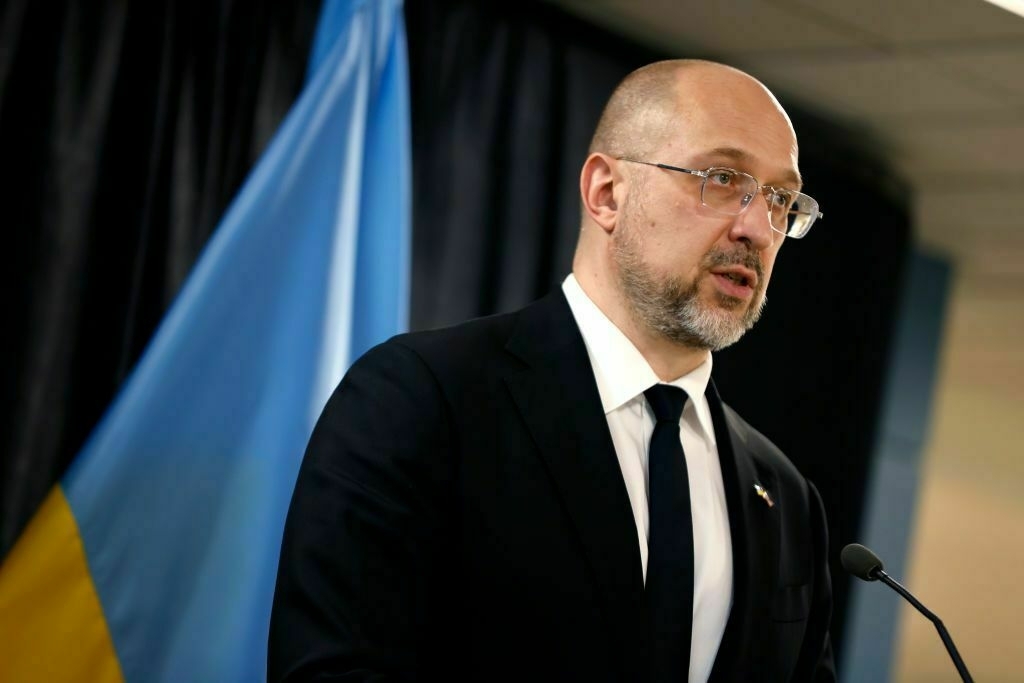
Ukraine will require more than $40 billion in external financial support in 2026 to sustain its economy and war effort, Prime Minister Denys Shmyhal said on July 9.
“The key task should be to develop mechanisms and tools that will allow us to attract these funds,” Shmyhal wrote on Telegram.
The remarks come as Kyiv scrambles to secure long-term financing while preparing to co-host the Ukraine Recovery Conference in Rome on July 10–11.
Shmyhal noted that the government submitted budget amendments in late June to increase defense spending by nearly $10 billion, bringing the total for security and defense in 2025 to around $50 billion, or 26% of Ukraine’s GDP.
“This will help to effectively counter the enemy,” he said, adding that Ukraine’s record defense budget includes $16.4 billion earmarked for weapons procurement.
While the budget’s own revenues are projected at $48.5 billion, the government has already secured $22 billion in foreign financing for 2025.
His comments follow a July 8 Financial Times article citing a projected budget deficit of $8 billion to $19 billion for 2026, largely due to declining U.S. contributions and the ongoing war.
A senior EU official told the outlet that many donors had previously expected a peace deal in 2025, but are now forced to revise their funding plans as Russia continues its offensive and rejects calls for an unconditional ceasefire.
‘We need to learn how to live without America’ — Ukraine’s survival amid faltering U.S. aidUkrainians breathed a sigh of relief of sorts this week after it was confirmed that U.S. President Donald Trump had ordered the continuation of shipments of critical military aid after a brief pause. The days-long hiccup alarmed a Ukraine beset with ever-escalating Russian air strikes and a dwindling supply of the means to stop them, and is just the latest instalment of a saga riven with uncertainty over Washington’s willingness to give Ukraine what it needs to defend itself against Russia. A The Kyiv IndependentKollen Post
The Kyiv IndependentKollen Post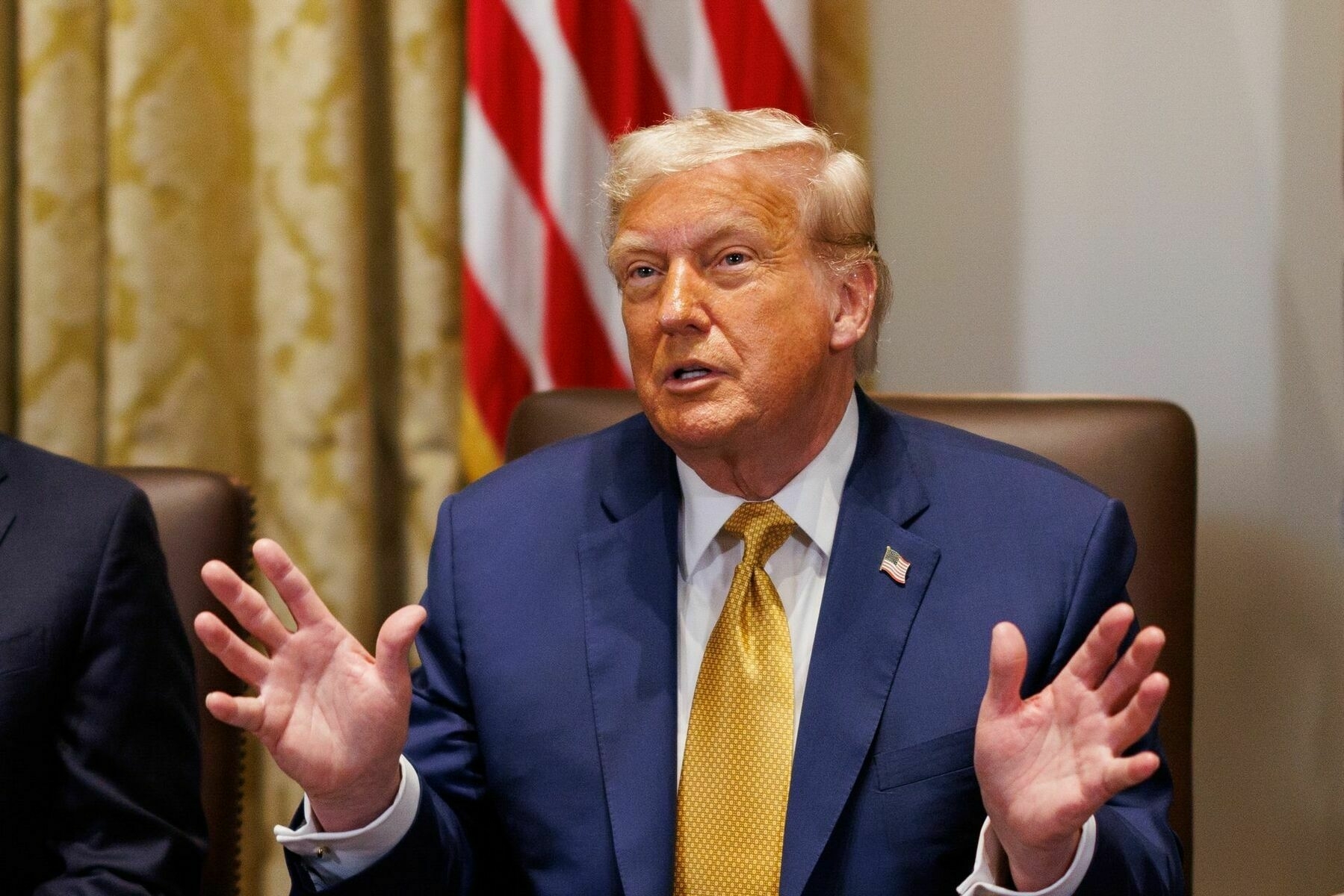
-
Ukraine detains two Chinese nationals for attempted espionage
Ukraine's Security Service (SBU) detained two Chinese nationals in Kyiv on charges of espionage. According to reports from the SBU and Ukraine's Prosecutor General's Office shared on July 9, the two individuals were reportedly attempting to transfer confidential documents related to Ukraine's RK-360MC "Neptune" missile system to Chinese security agencies.
The investigation reveals that one of the suspects is a 24-year-old former student from a Kyiv technical university. "He remained in Kyiv after being expelled in 2023 for academic failure," stated the SBU on their Telegram channel. "The other involved individual is the former student's father, who predominantly resided in China but occasionally visited Ukraine to personally oversee his son's espionage activities."
Authorities have disclosed that the former student tried to recruit a Ukrainian citizen linked to the development of cutting-edge Defense Forces weapons to gain access to the classified materials. The young man was apprehended early in his espionage attempts while receiving sensitive documents, the Ukrainian security service noted.
The father reportedly entered Ukraine on July 7 and visited the Chinese embassy in Kyiv the next day. "The prosecution plans to serve him with a notice of suspicion for espionage and request the court for his remand," reports the Office of Ukraine's Prosecutor General on their website.
The SBU's press service reminds that the "Neptune" missile system is designed to target all types of combat and landing ships. It notably played a pivotal role in the destruction of the Russian Black Sea Fleet's flagship cruiser "Moskva."
-
Trump says US will 'take a look' at sending new Patriot system to Ukraine amid Russian attacks
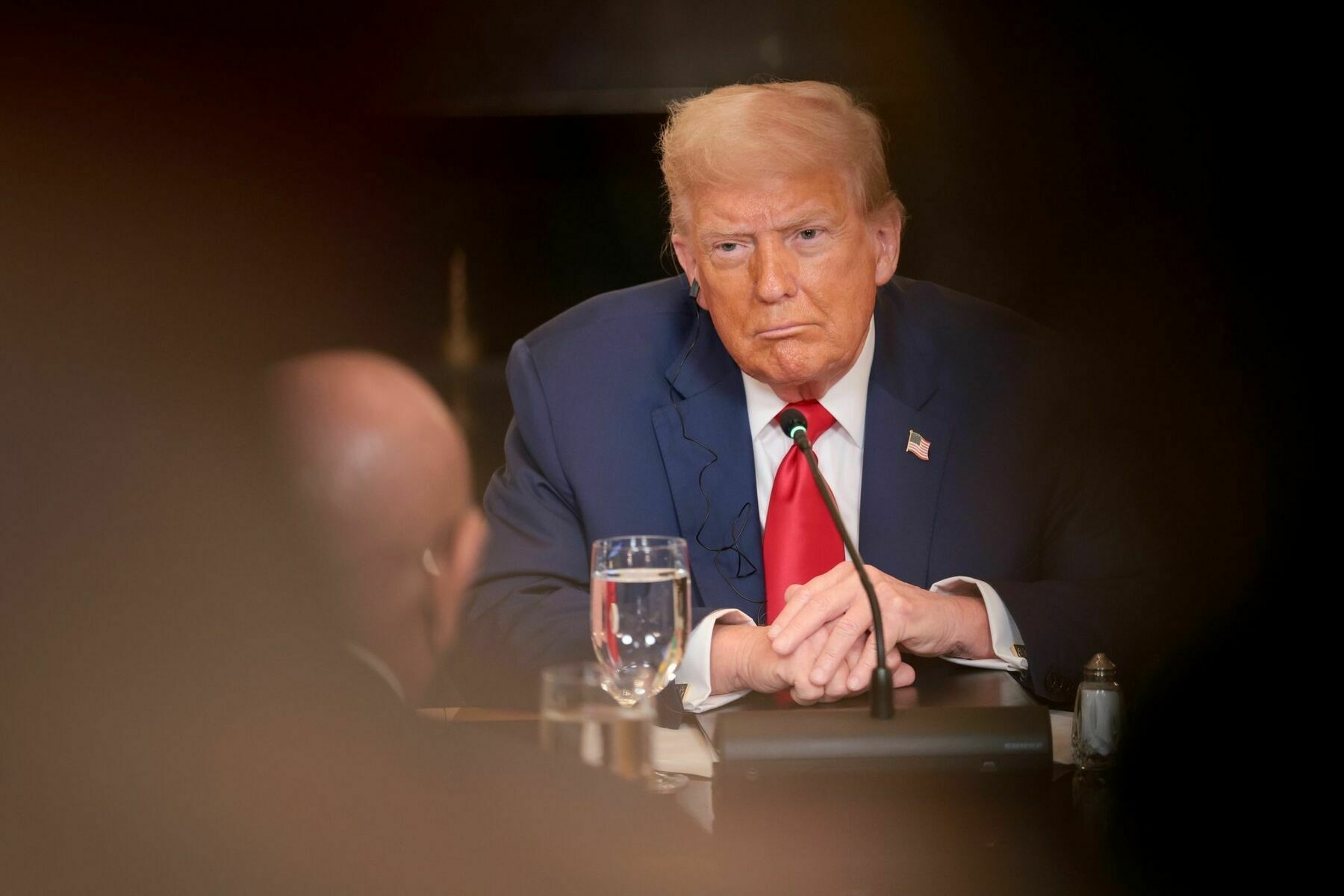
U.S. President Donald Trump said on July 9 that his administration is “going to have to take a look” at supplying Ukraine with another Patriot air defense system.
“They would like it. They’ve asked for it,” Trump told reporters in the White House. “I know they made the request. We’re going to have to take a look at it."
“When you talk about a system like that… they’re doing it because they want to prevent death,” he added. “They’re getting hit hard, very hard. So we’re looking at it."
The comments follow a July 8 reporting by the Wall Street Journal (WSJ) that the White House is considering sending Ukraine a Patriot battery in what would be the administration’s first major new weapons transfer since taking office in January.
A U.S. defense official told WSJ that Trump has asked the Pentagon to explore options for supplying Ukraine with more arms, including whether additional Patriots could be sourced from allied countries.
According to Axios, the White House is working on a deal under which Germany would sell a Patriot battery to Ukraine, with the U.S. and European allies sharing the cost.
The proposal comes amid a series of conflicting signals from Washington. On July 2, the Pentagon announced a pause in deliveries of key military aid to Kyiv, including Patriot interceptors and precision-guided munitions.
Trump later denied involvement in the decision and expressed frustration with Russian President Vladimir Putin for failing to pursue a ceasefire.
Kyiv has repeatedly urged Western partners to expand air defense coverage as Russian forces continue to target Ukrainian cities with drones, missiles, and aerial bombs.
Patriot batteries, with their high-precision tracking and interception capabilities, are a cornerstone of Ukraine’s layered air defense system.
Washington has so far delivered three Patriot batteries to Ukraine, while Germany has sent three more. A European coalition has contributed an additional battery, though not all systems are currently operational due to maintenance rotations.
If approved, a new transfer would mark Trump’s first major military package to Ukraine not initiated by the previous Biden administration.
Kremlin exacts loyalty amid tightening crackdown on Russian eliteThe Kremlin’s grip on the Russian elite appears to be closing ever tighter as two major figures of Russian business and security structures were detained in the past few days. Konstantin Strukov, a billionaire running a gold mining empire, and Viktor Strigunov, a former top officer in Russia’s National Guard, are now facing corruption accusations. While separate cases, they point to a push by Russian higher-ups to purge corrupt or potentially disloyal figures as Moscow grinds forward its full- The Kyiv IndependentMartin Fornusek
The Kyiv IndependentMartin Fornusek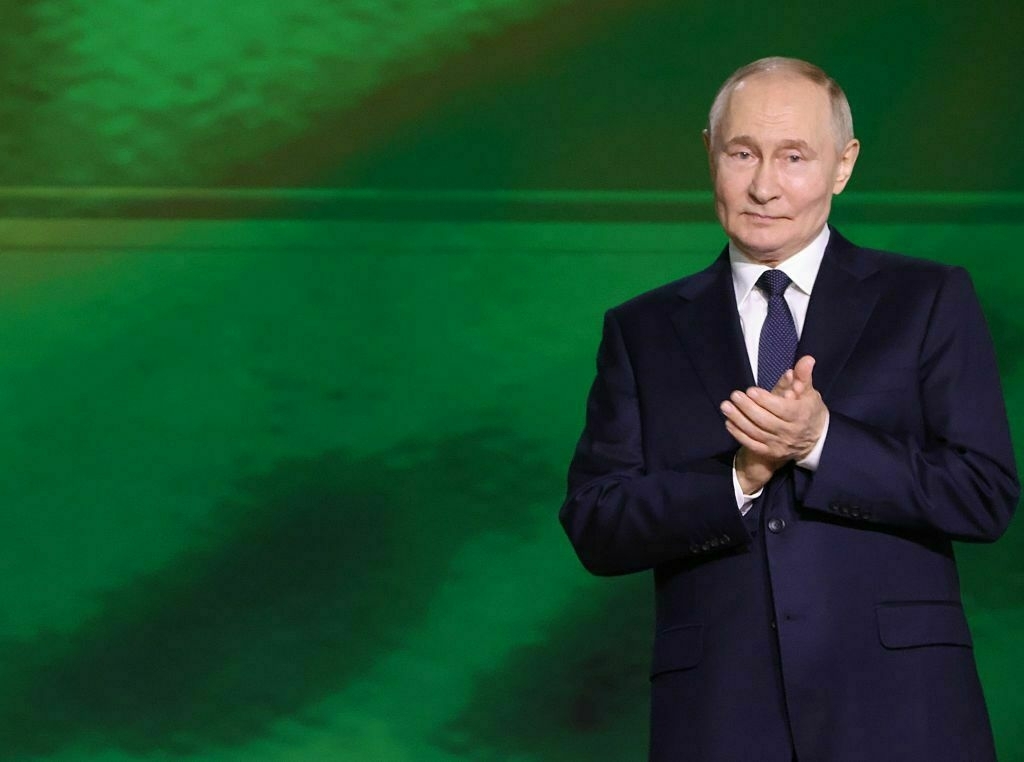
-
Russian army elite was destroyed – Armed Forces of Ukraine deal a devastating blow!
-
Zelensky meets Trump's envoy Kellogg in Rome
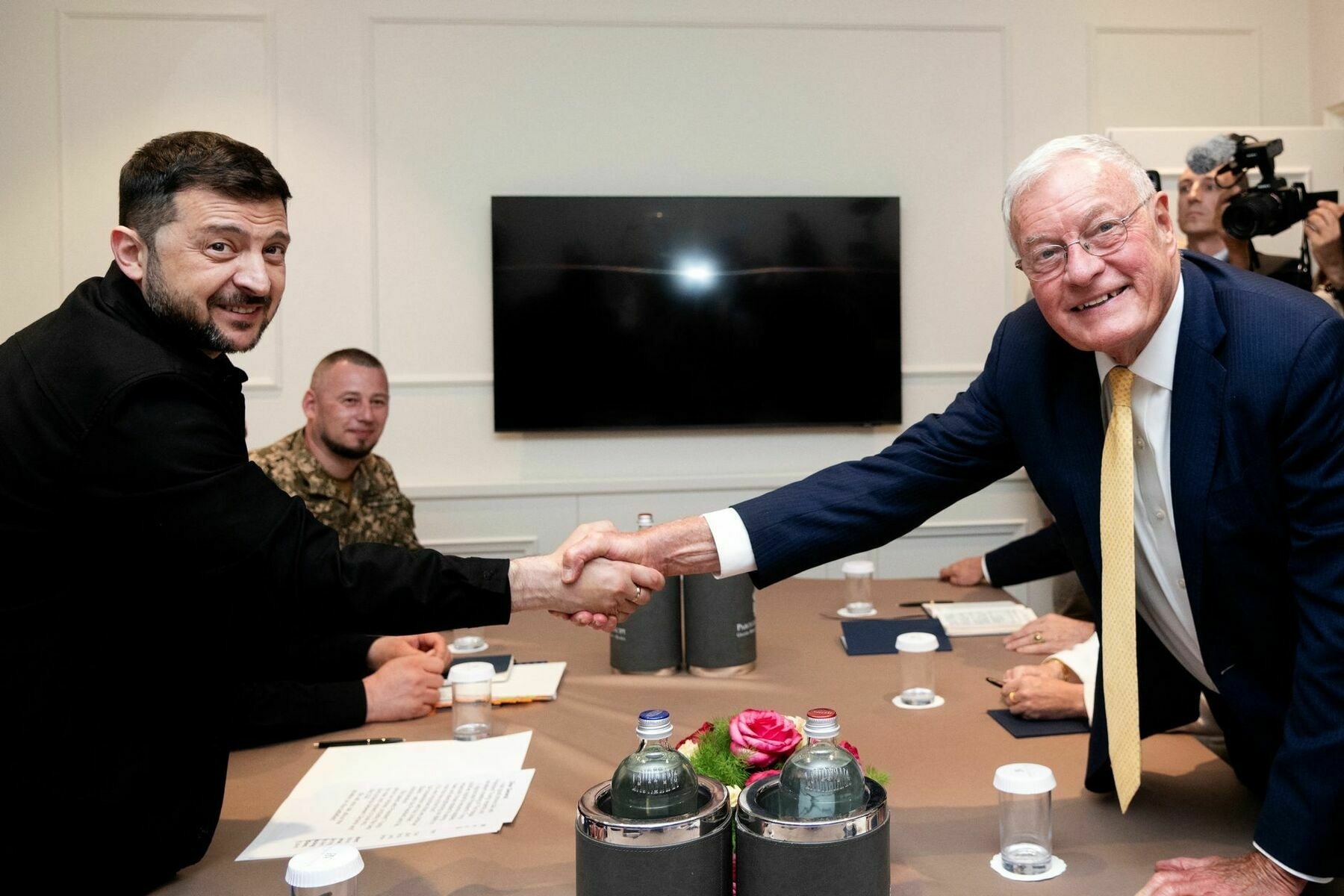
Editor’s note: This item is being updated.
President Volodymyr Zelensky met with U.S. Special Envoy for Ukraine Keith Kellogg in Rome on July 9, marking their second official meeting.
The meeting comes on the eve of the Ukraine Recovery Conference, co-hosted by Ukraine and Italy on July 10–11. It marks the fourth major international event focused on mobilizing political and private-sector support for Ukraine’s reconstruction.
Kellogg, a prominent figure in U.S. President Donald Trump’s administration, has led recent diplomatic outreach with Ukrainian leadership.
Before his meeting with Kellogg, Zelensky met with Pope Leo at Castel Gandolfo, the papal summer residence south of Rome. He also met with Italian President Sergio Mattarella.
The recovery conference opens as Ukraine continues to absorb daily aerial bombardments and repel Russian ground offensives across the front line. The destruction has placed immense pressure on Ukraine’s economy and infrastructure.
The Financial Times reported on July 8 that Kyiv faces a projected $19-billion budget deficit in 2025, driven largely by declining U.S. assistance and the absence of a breakthrough toward a ceasefire.
A senior EU official told the outlet that Western donors had previously anticipated a peace agreement by next year but are now preparing for continued hostilities.
As the Trump rollercoaster continues, Ukraine struggles to work out where it standsUkrainians breathed a sigh of relief of sorts this week after it was confirmed that U.S. President Donald Trump had ordered the continuation of shipments of critical military aid after a brief pause. The days-long hiccup alarmed a Ukraine beset with ever-escalating Russian air strikes and a dwindling supply of the means to stop them, and is just the latest instalment of a saga riven with uncertainty over Washington’s willingness to give Ukraine what it needs to defend itself against Russia. A The Kyiv IndependentKollen Post
The Kyiv IndependentKollen Post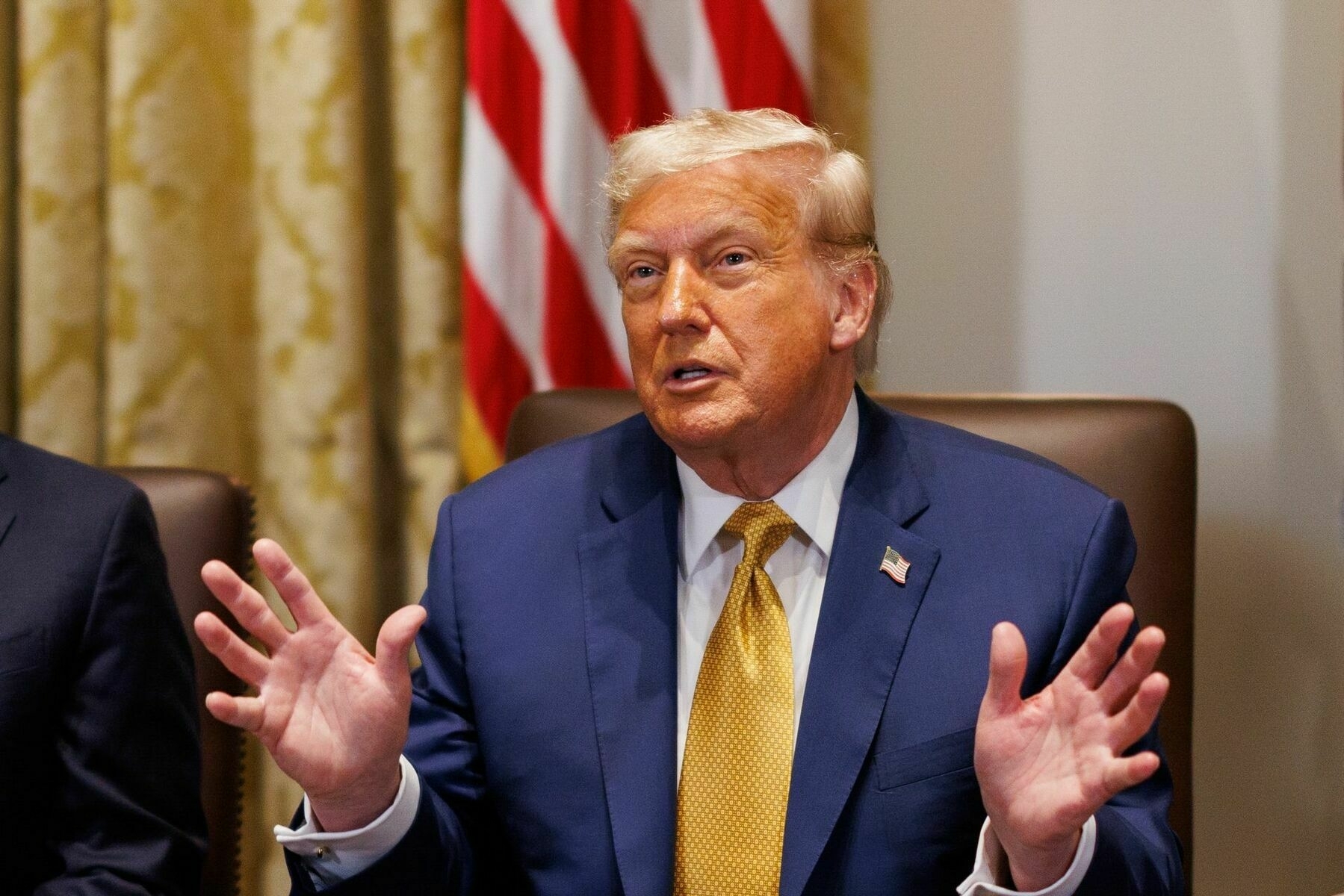
-
Kremlin exacts loyalty amid tightening crackdown on Russian elite
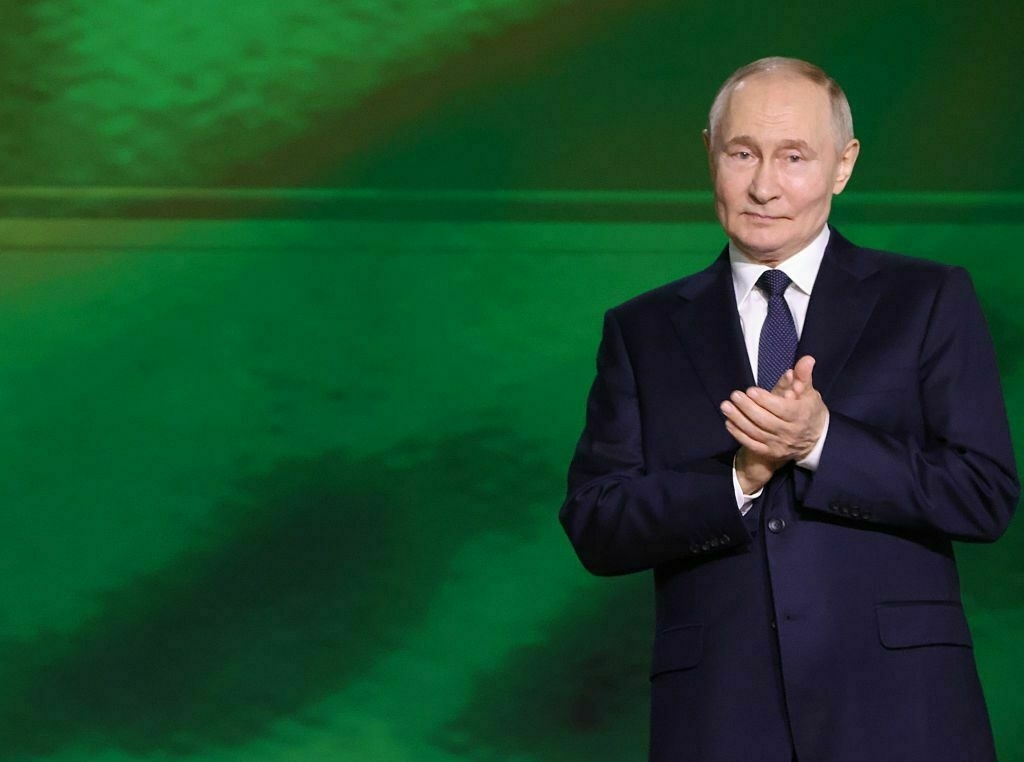
The Kremlin’s grip on the Russian elite appears to be closing ever tighter as two major figures of Russian business and security structures were detained in the past few days.
Konstantin Strukov, a billionaire running a gold mining empire, and Viktor Strigunov, a former top officer in Russia’s National Guard, are now facing corruption accusations.
While separate cases, they point to a push by Russian higher-ups to purge corrupt or potentially disloyal figures as Moscow grinds forward its full-scale war on Ukraine.
“I would certainly say that there has been an increased crackdown (on the Russian elite),” says Stephen Hall, assistant professor in Russian and post-Soviet politics at the University of Bath.
The Russian state is “trying to send the signal that loyalty is important… You can be corrupt, but don’t be too excessively corrupt without showing loyalty."
Death of top Russian oil executive fuels fresh scrutiny of elite’s ‘window falls’The unexplained death of a top Russian oil executive on July 4 is fueling renewed scrutiny over the rising number of high-profile Russian officials and businessmen who have died under mysterious circumstances, specifically, have fallen out of windows. Andrei Badalov, vice president of Transneft, Russia’s largest state-controlled pipeline transport company, died after falling from the window of his apartment in Moscow. Russian state news agency TASS, citing law enforcement sources, claimed the The Kyiv IndependentTim Zadorozhnyy
The Kyiv IndependentTim Zadorozhnyy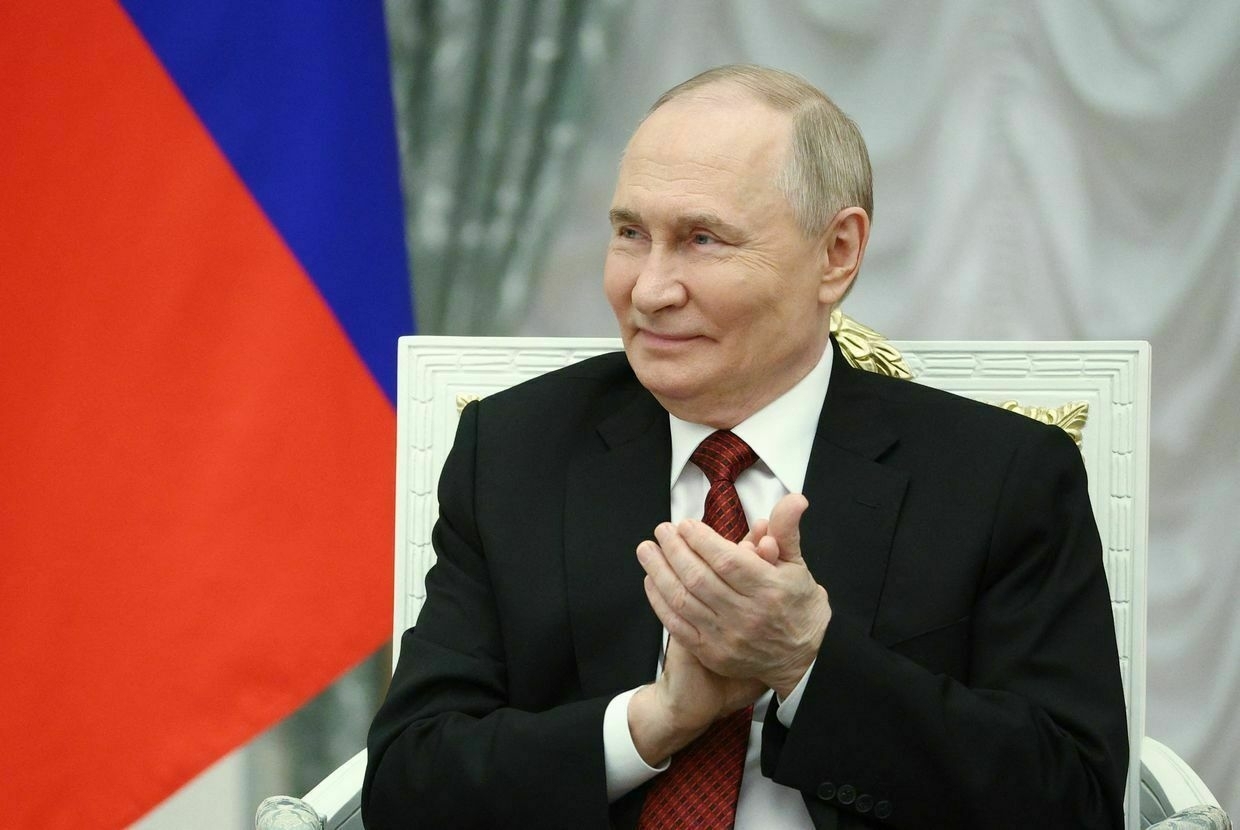
Gold mining magnate detainedStrukov was caught attempting to leave Chelyabinsk for Turkey on a private jet despite an earlier court ban on traveling abroad, Kommersant reported on July 5. As the pro-Kremlin news outlet wrote, Russian authorities boarded the aircraft and seized the businessman’s passport.
The detention followed a court ruling on July 2 that Strukov and his family cannot leave the country as Russian prosecutors seek to seize his assets.
The same day, the Federal Security Service (FSB) and the Investigative Committee raided the offices of Strukov’s Yuzhuralzoloto group as part of an investigation into alleged environmental and safety violations.
Though Strukov’s relatives and company denied his attempt to flee, Kommersant shared a picture of the billionaire sitting despondent on board the plane, surrounded by black-clad officers.
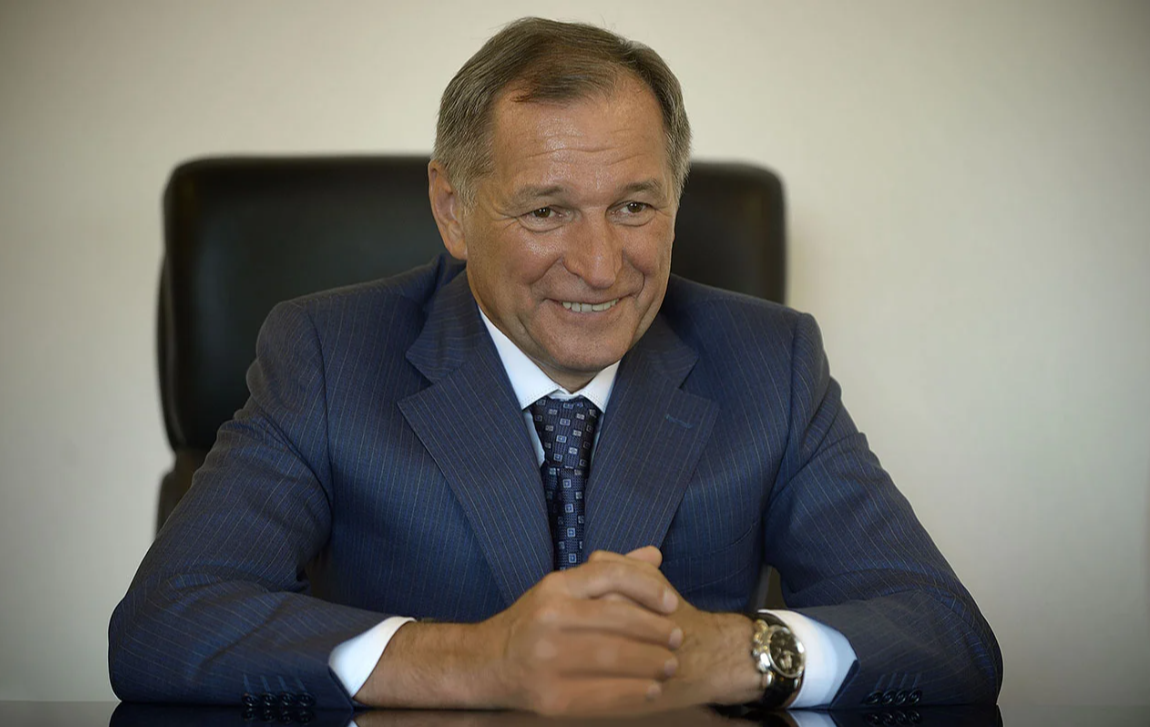
Konstantin Strukov. (WikiJournal) A Chelyabinsk court told Reuters that Russian prosecutors suspect Strukov of acquiring property “through corruption,” while Kommersant wrote the billionaire allegedly used his official position to transfer assets to his company.
The Russian Prosecutor General’s Office now reportedly calls for the transfer of Strukov’s shares and stakes in 11 companies, including the Yuzhuralzoloto group, Russia’s third-largest gold producer, into state ownership.
The company is currently registered under Strukov’s daughter, Alexandra, who holds Swiss citizenship.
The case mirrors earlier state takeovers during the full-scale war against Ukraine, presented as an anti-corruption campaign. It comes at a time when Russia is grappling with a widening budget deficit and an overheating economy.
The case could signal that the “Russian economy is not doing as well as Putin keeps on publicly saying that it is,” Hall told the Kyiv Independent.
“We’re starting to see that the ever-shrinking pie, as it were, needs to be redistributed… it may be that his (Strukov’s) assets are being taken over in order to be redistributed to someone closer to Putin."
The nationalization drive peaked in 2024, when the state seized at least 67 companies with a total asset valuation of 544.7 billion rubles (about $7 billion), the Moscow Times calculated. Companies whose owners were suspected of Western connections were particularly targeted.
The Kremlin walks a tightrope here
— Tim White (@TWMCLtd) July 5, 2025
It’s sold more foreign currency reserves this week to stave off collapse. So now it shakes down oligarchs.
Gold-mining billionaire Konstantin Strukov is arrested on his private jet as he tried to leave for Turkiye. Russia wants all his assets pic.twitter.com/HIj1vteohLStrukov's family owns businesses in Serbia and Montenegro, and Russian authorities reportedly accused him of funneling money from Russia to "unfriendly countries."
Russia likely doesn't want key national assets like gold "in the hands of someone that it doesn't necessarily trust, a man who has been sending money abroad to 'unfriendly countries,'" Hall said.
A former coal miner, Strukov took over Yuzhuralzoloto — at the time on the verge of bankruptcy — in 1997, restructuring it and building up sizeable holdings in the gold and coal mining sectors.
According to Forbes, the gold mining magnate is the 78th richest man in Russia with a net worth of $1.9 billion. Strukov is also a member of the Chelyabinsk legislative assembly for Putin's United Russia party. He is sanctioned by the U.S., the EU, and the U.K.
The Kremlin has declined to comment on the case when approached by the Russian media.
Defense officials in the crosshairsAs the Russian state tightens its grip on business, it also continues to "clean up" the security structures.
Colonel General Viktor Strigunov, first deputy director of the Russian National Guard (Rosgvardiya) until 2023, has been detained on suspicion of bribery and abuse of power, the Russian state media reported on July 7.
Strigunov, while in charge of a multi-million dollar contract for the construction of a training facility in Siberian Kemerovo Oblast in 2014, ordered the project to proceed despite existing restrictions, according to RIA Novosti.
The project was never completed, causing the state to lose over 2 billion rubles (over $25 million).
The former official is also accused of taking bribes of over 66 million rubles (over $840,000) from private companies between 2012 and 2014 in exchange for patronage during major state construction projects.
Strigunov is not the first National Guard official embroiled in a corruption case this year.
Major General Konstantin Ryabykh was fired and detained in February over suspected bribery, while Major General Mikhail Varentsov was arrested on fraud charges in April.
Hall links the cases to a broader Kremlin crackdown on Russia's defense groups. On July 1, former Deputy Defense Minister Timur Ivanov was sentenced to 13 years for bribery in a case dating back to a broader anti-graft campaign against defense officials in 2024.
However, Strigunov's case is especially notable because after his dismissal as the National Guard's deputy head in 2023, he served as an advisor to the force's chief and Putin's close ally, Viktor Zolotov.
"It could be that Zolotov is also trying to save his skin, having perhaps been a bit too corrupt," Hall says, suggesting that the National Guard chief has selected Strigunov to be his "fall guy."
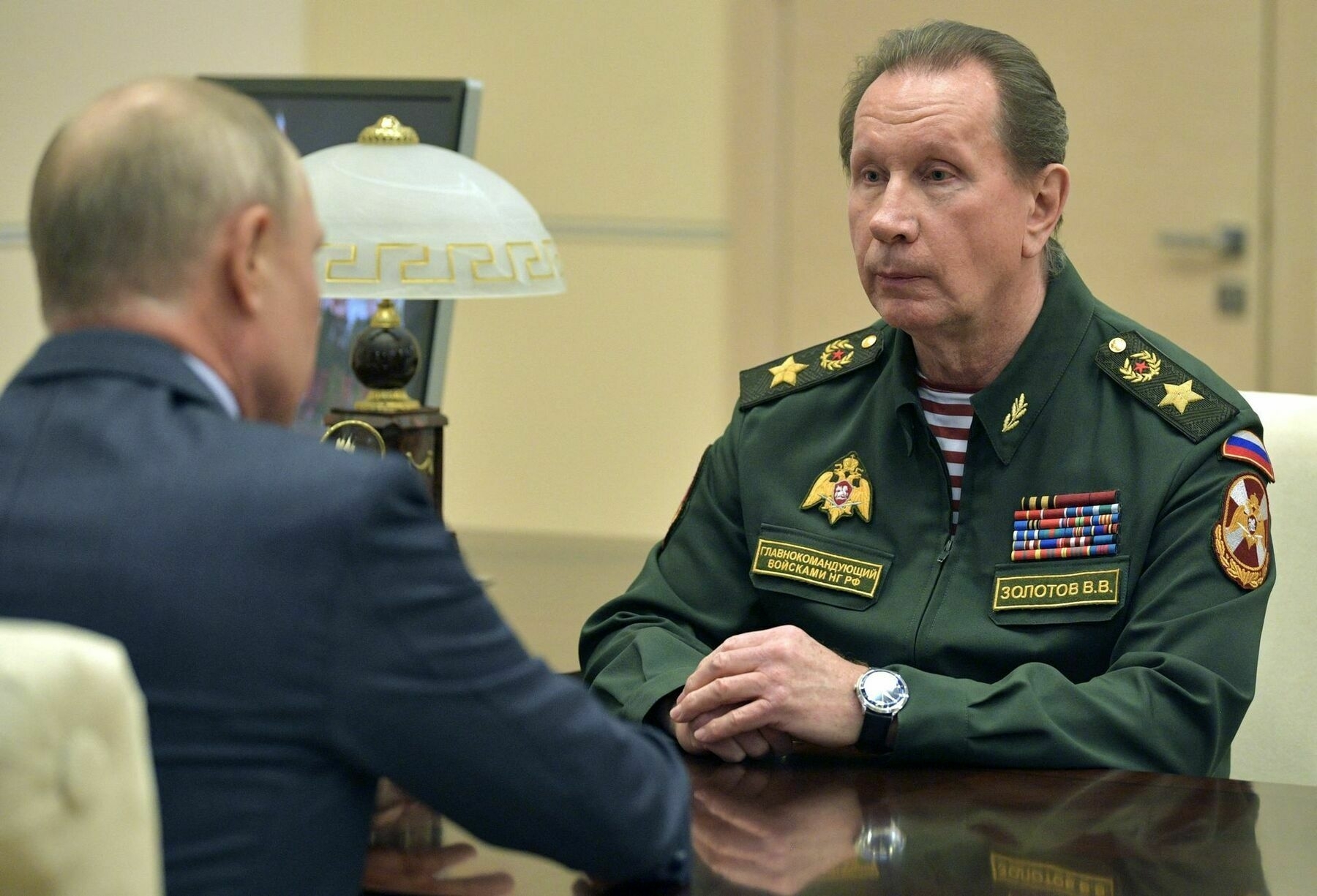
Russian President Vladimir Putin meets with the chief of the National Guard, Viktor Zolotov, at the Novo-Ogaryovo state residence outside Moscow on May 6, 2020. ( Alexey Druzhninin/Sputnik/AFP via Getty Images) Mounting crackdown on Russian eliteThis week's cases are only the latest in a string of firings and arrests in the more than three years of the full-scale war.
The atmosphere of anxiety among the Russian elite is growing even heavier amid mysterious suicide cases.
Just on July 7, the Russian media reported that Transport Minister Roman Starovoit shot himself dead in Odintsovo shortly before or after being fired by Putin.
Starovoit was reportedly implicated in a major embezzling scandal while he was governor of Kursk Oblast. His former deputy, Alexei Smirnov, has already been arrested in the case, which centers around the construction of fortifications in the border region.
Other government and business officials have met untimely deaths in the past years, often falling out of windows under unclear circumstances. Although these cases are usually labelled by Russian authorities as suicides or accidents, some observers suggest a deliberate motive.
While Hall observes mounting pressure against the Russian elite, Russian journalist and opposition activist Sergey Parkhomenko says the events could be seen instead as elite infighting.
"The law enforcement agencies are part of the Russian elite, and it appears that this elite is pressuring itself and from within," he told the Kyiv Independent.
"Russian power structures are closed off inside Russia like a hermetic jar... Therefore, pressure within this environment is growing, and its participants are constantly devouring each other. All this is quite chaotic in nature."
Trump claims he told Putin he would ‘bomb the sh*t out of Moscow’ if Russia attacked Ukraine, CNN reports“With Putin I said, ‘If you go into Ukraine, I’m going to bomb the sh*t out of Moscow. I’m telling you I have no choice,’” Donald Trump told a group of donors in 2024, according to CNN. The Kyiv IndependentMartin Fornusek
The Kyiv IndependentMartin Fornusek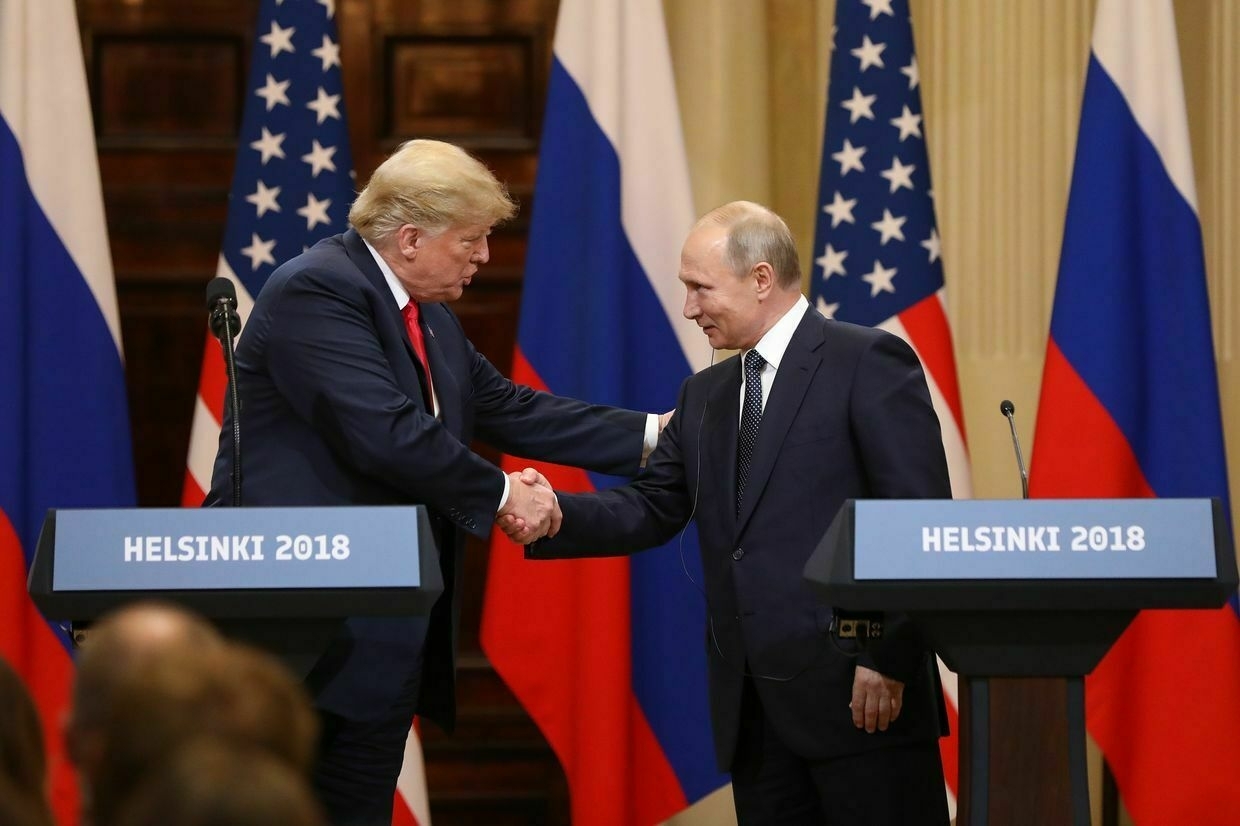
-
Despite security risks, Russia to reopen Gelendzhik Airport in drone-struck Krasnodar Krai
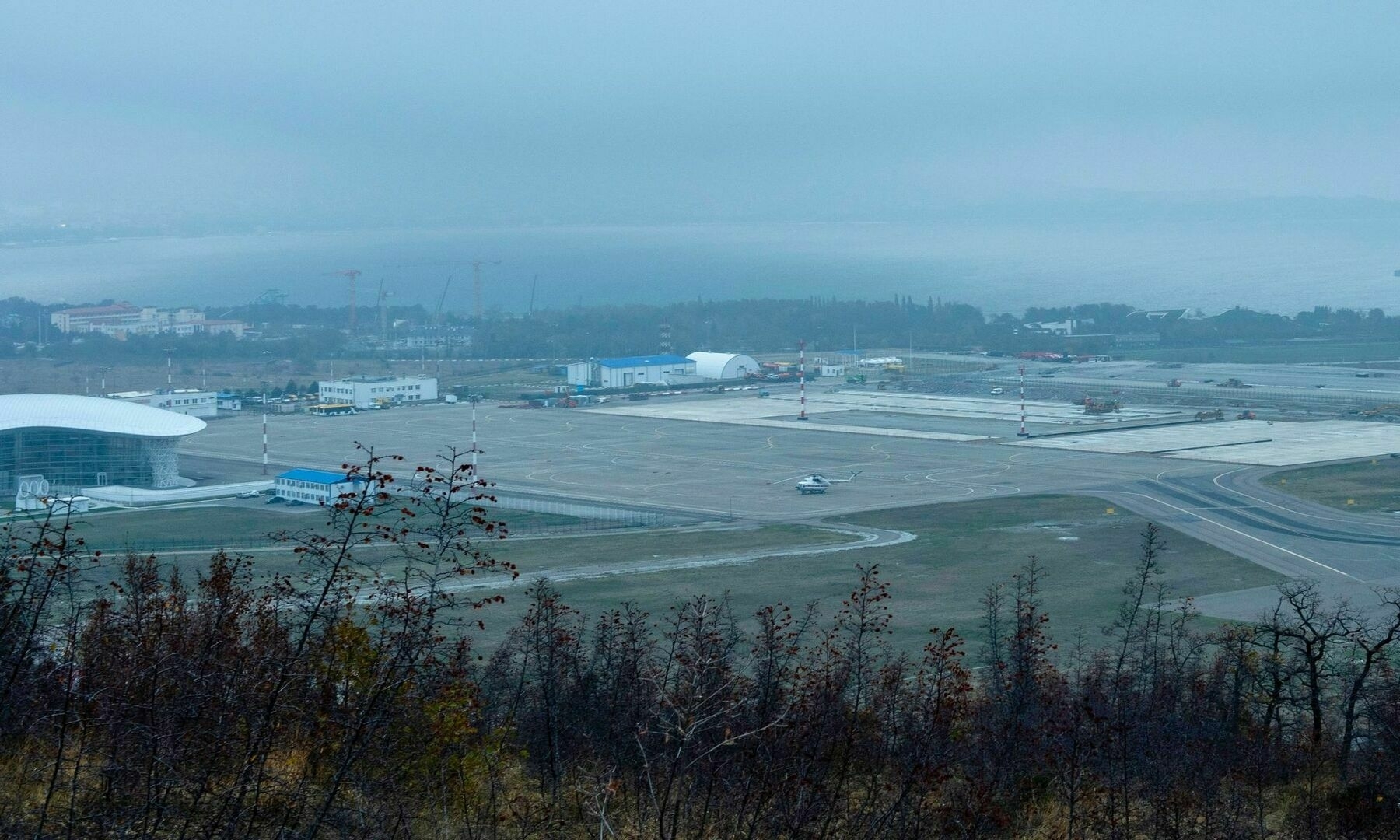
Russia will reopen Gelendzhik Airport in the country’s Krasnodar Krai for domestic flights on July 18, in a rare easing of airspace restrictons imposed at the start of the full-scale war, the Transport Ministry announced on July 9.
The decision comes just days after nearly 500 flights were grounded across major Russian airports on July 5–7, due to security threats from Ukrainian drone attacks.
Located just 130 kilometers (80.78 miles) from occupied Crimea, the airport had been shuttered since February 2022, along with 10 other southern airports. After Elista Airport reopened in May, it will become only the second in the region to resume operations.
Kyiv has not officially taken responsibility for the disruptions in Russian air traffic, but Ukrainian officials have said that drone operations aim to disrupt logistics and bring the consequences of the war closer to the Russian population.
Russia’s Transport Ministry said aviation safety at Gelendzhik had been confirmed by the federal aviation agency Rosaviatsiya and the State Corporation for Air Traffic Management.
Krasnodar Krai is located along the Black Sea and borders Georgia and the occupied territories of Ukraine. In recent months, Krasnodar Krai has been repeatedly targeted by Ukrainian drone attacks, with strikes reported against infrastructure such as oil depots and airfields.
The reopening follows mounting pressure on Moscow’s transport sector. On July 7, President Vladimir Putin dismissed Transport Minister Roman Starovoit in the wake of the airport shutdowns and a separate ammonia leak at the Ust-Luga port. Hours later, Russian state media reported that Starovoit had died by suicide.
Russia responsible for MH17 downing, international law violations in Ukraine, Europe’s human rights court rulesThe ruling also found Russia responsible for the deadly downing of Flight MH17, a Malaysian airliner shot down by Russian proxy forces in Ukraine in July 2014. The Kyiv IndependentMartin Fornusek
The Kyiv IndependentMartin Fornusek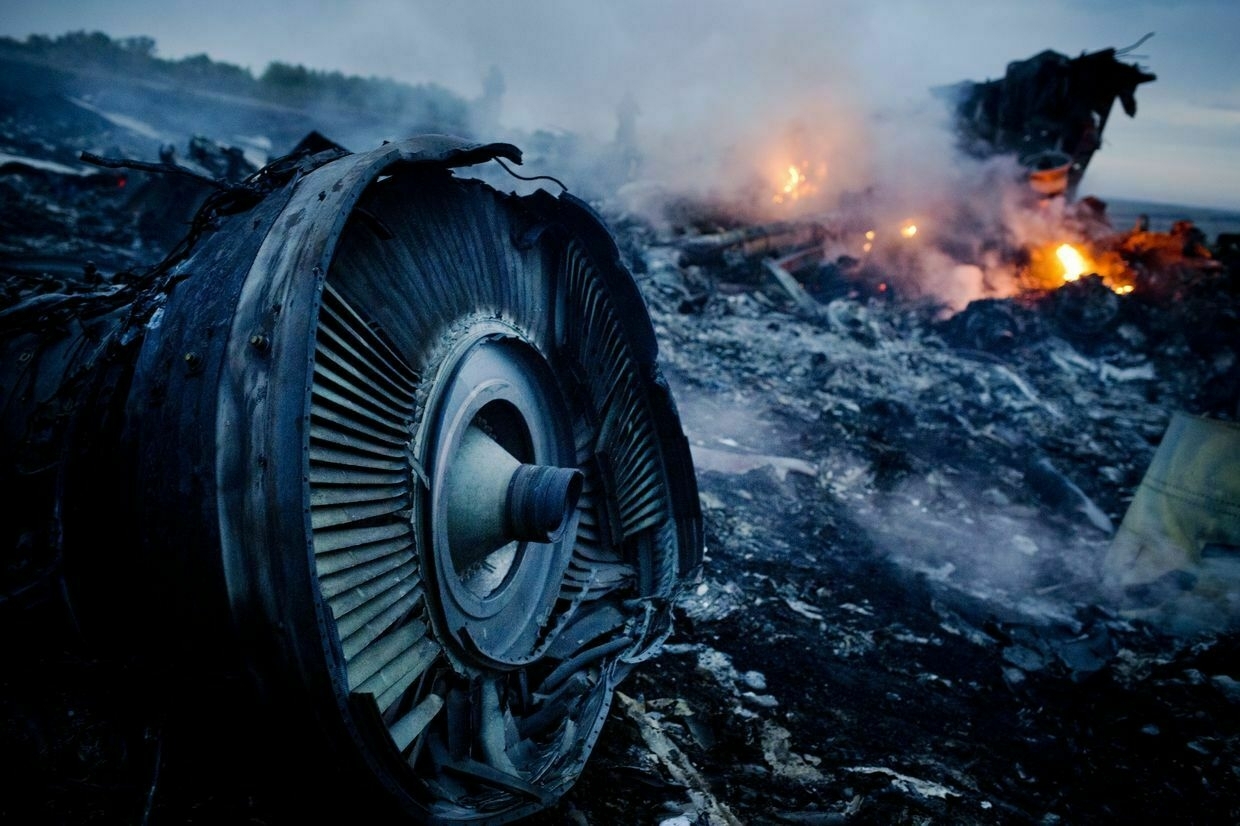
-
Is China arming Russia? Zelenskyy responds
-
Threats to Europe and nuclear blackmail: How Russia is destroying diplomacy | Hate Speech